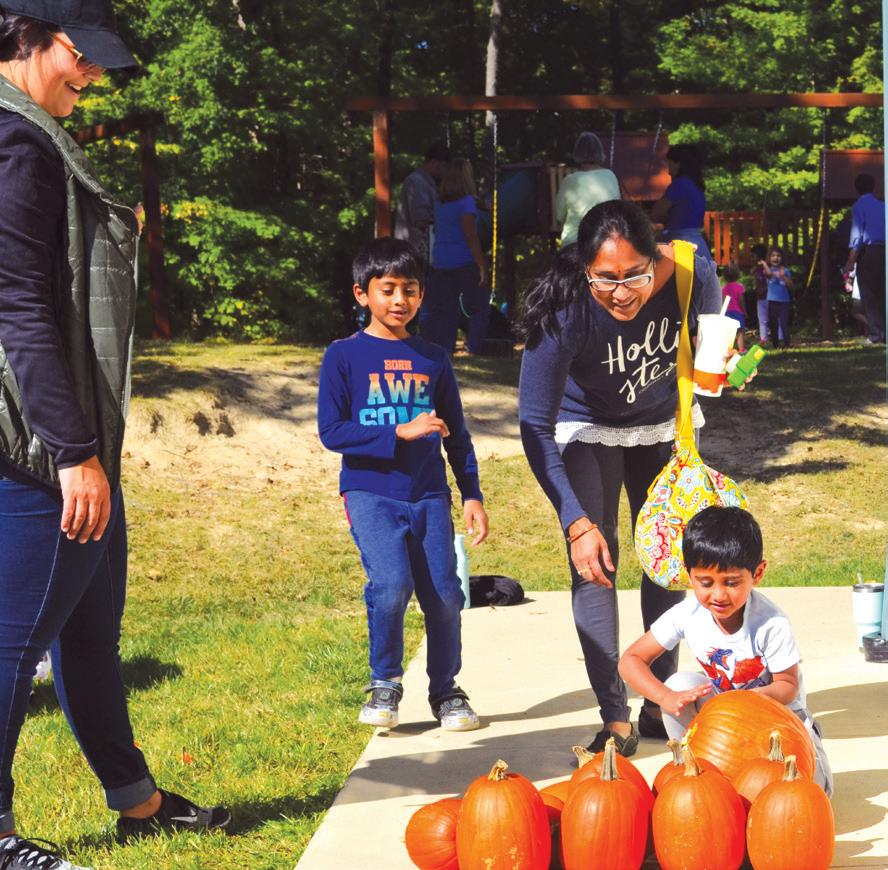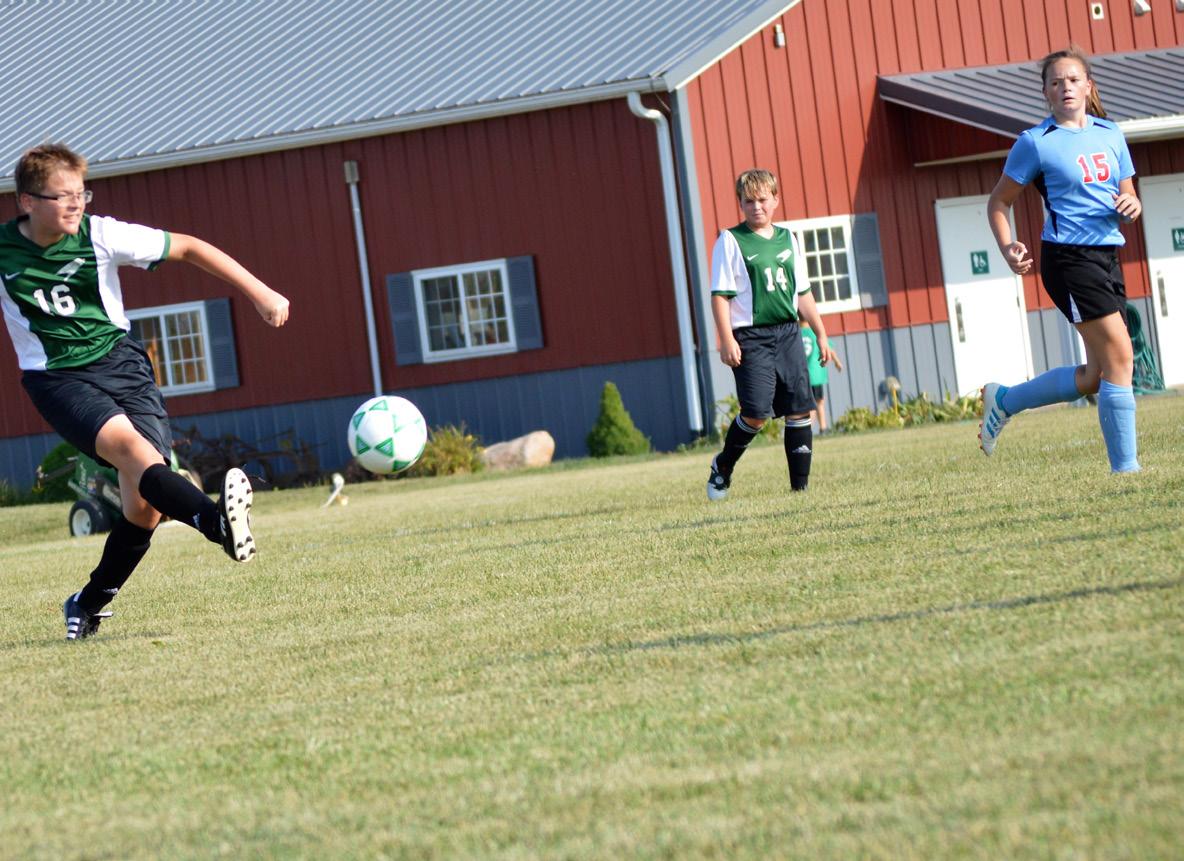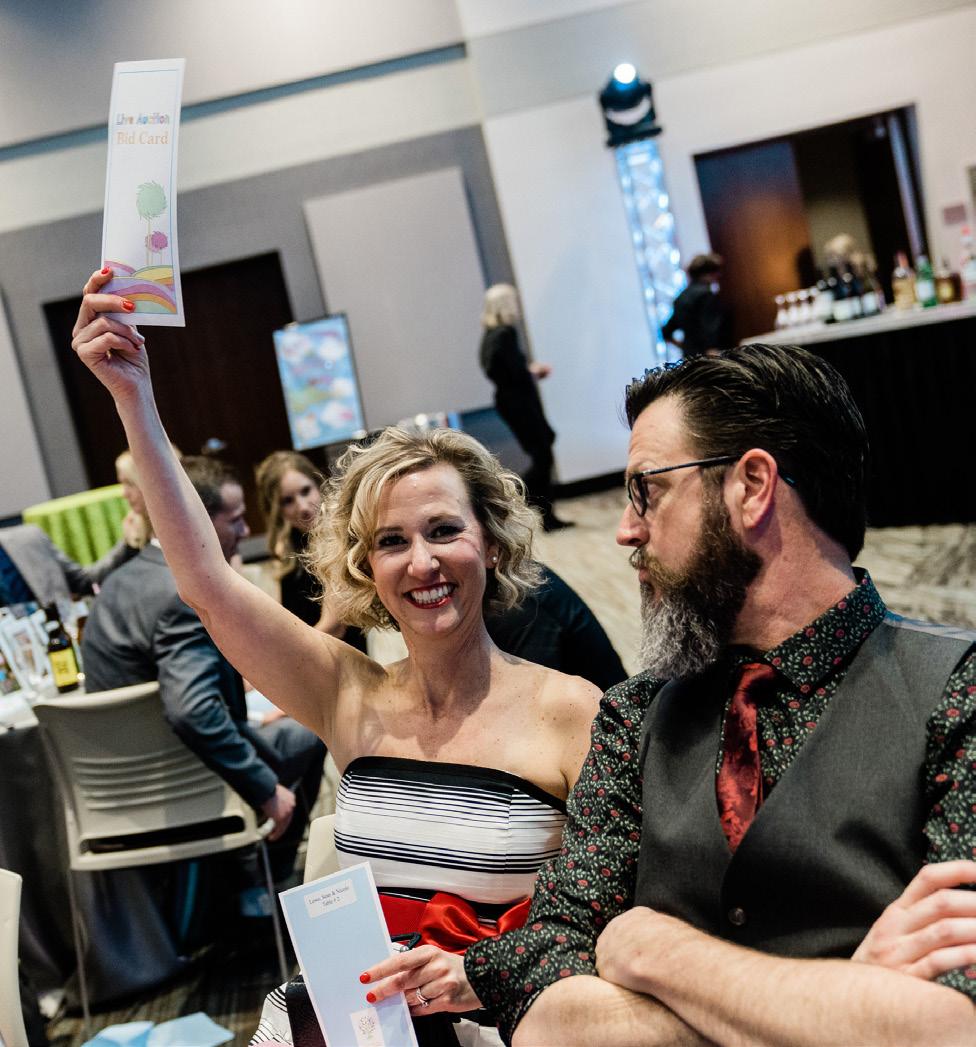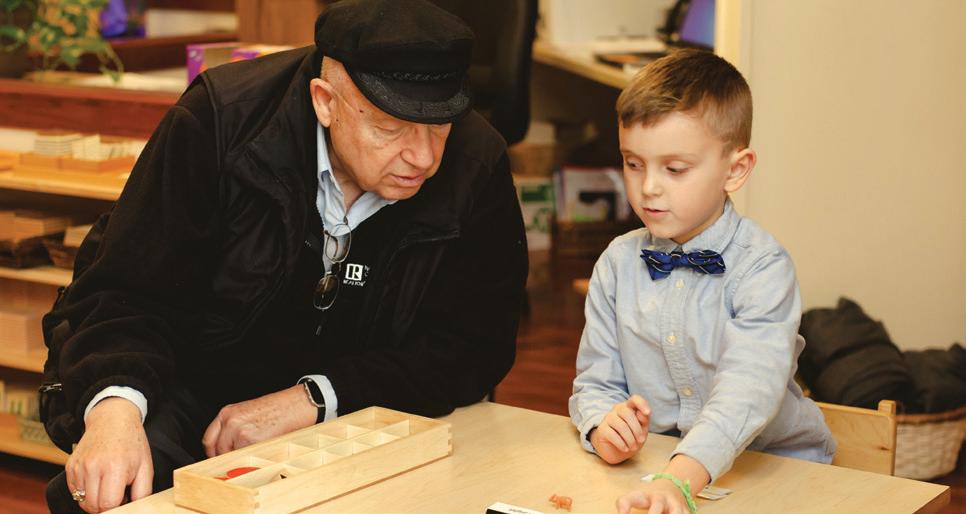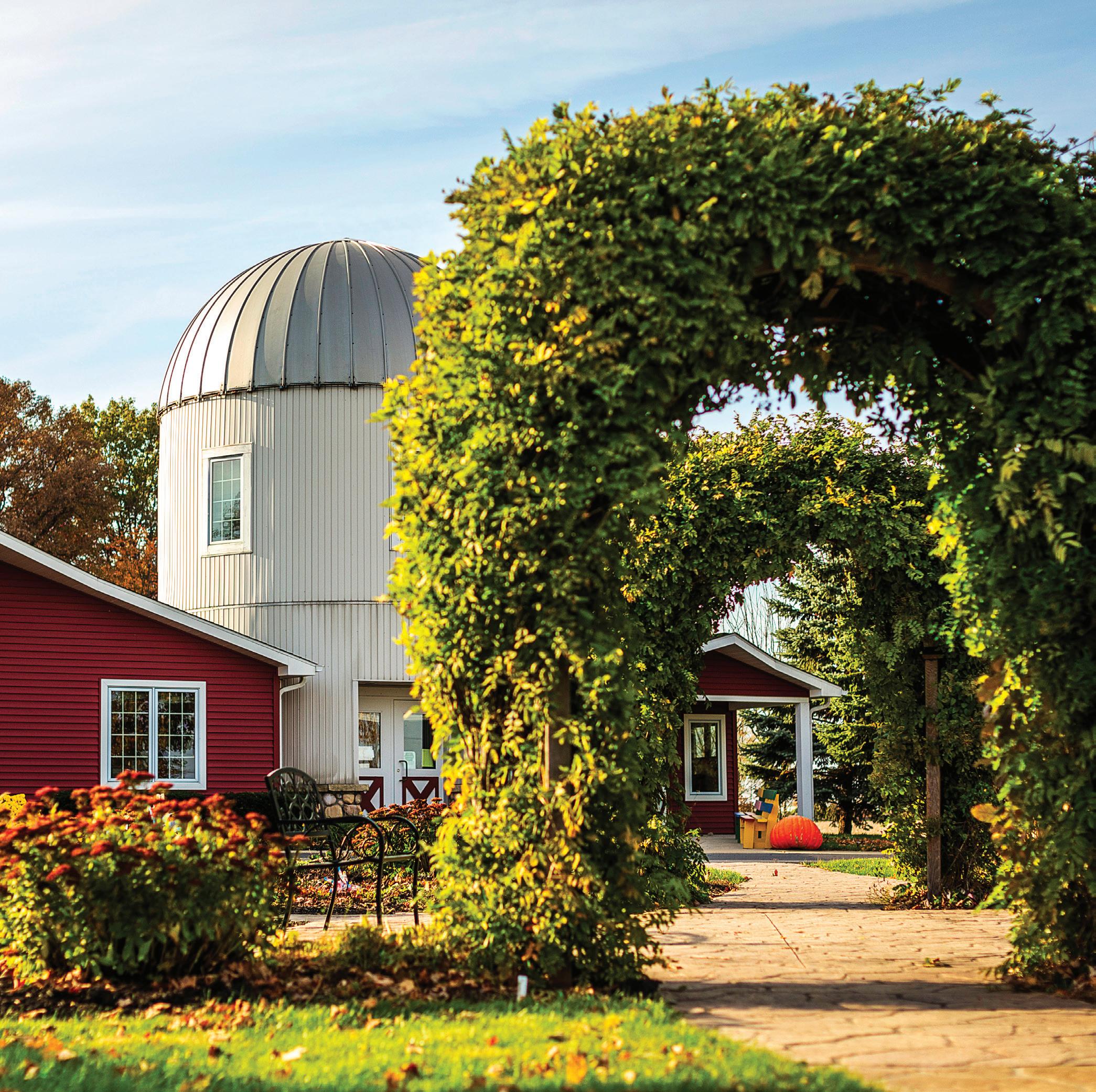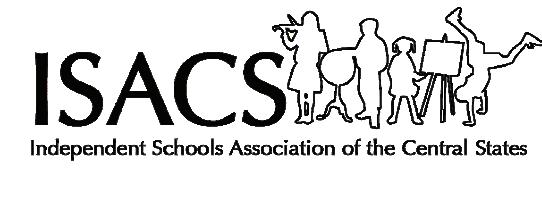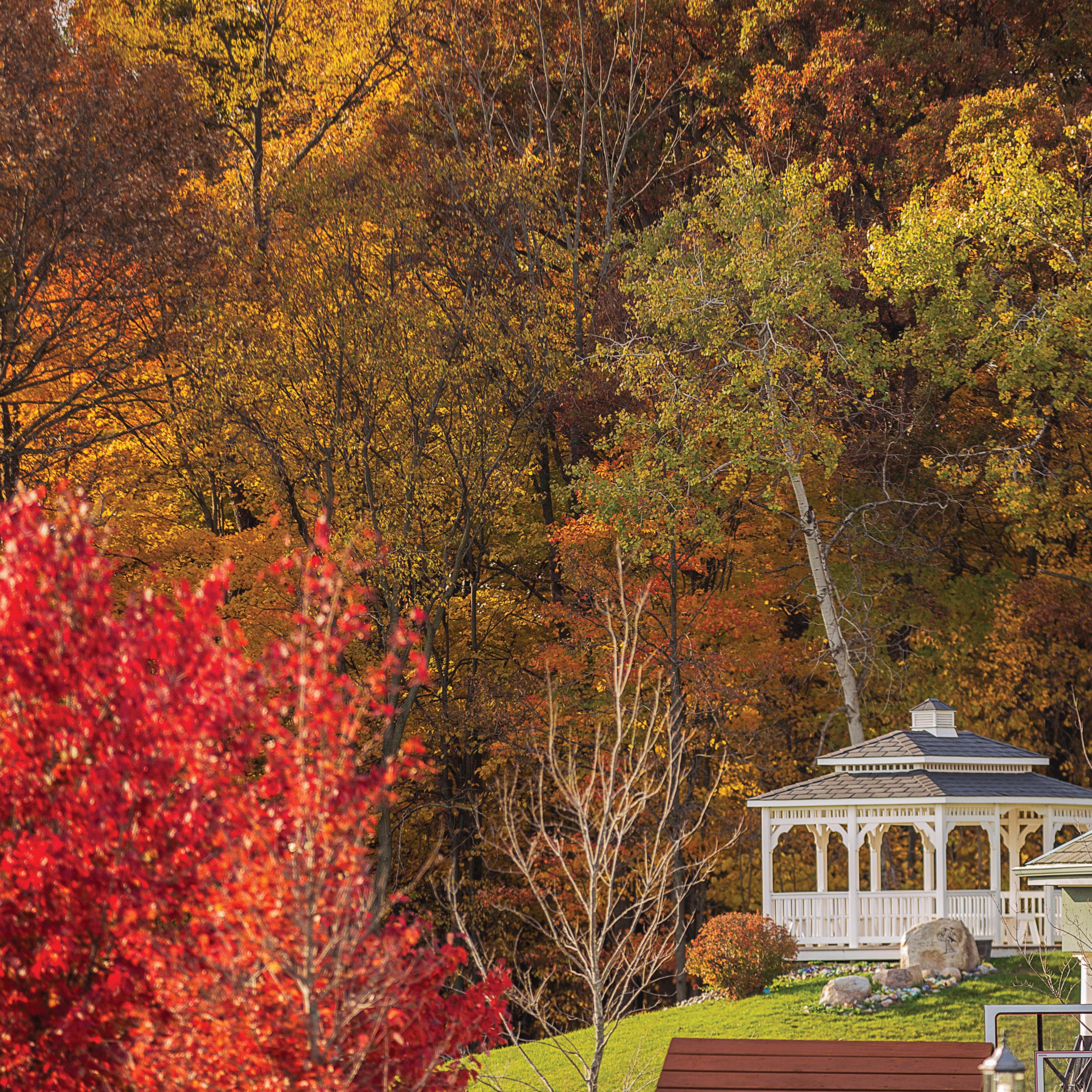
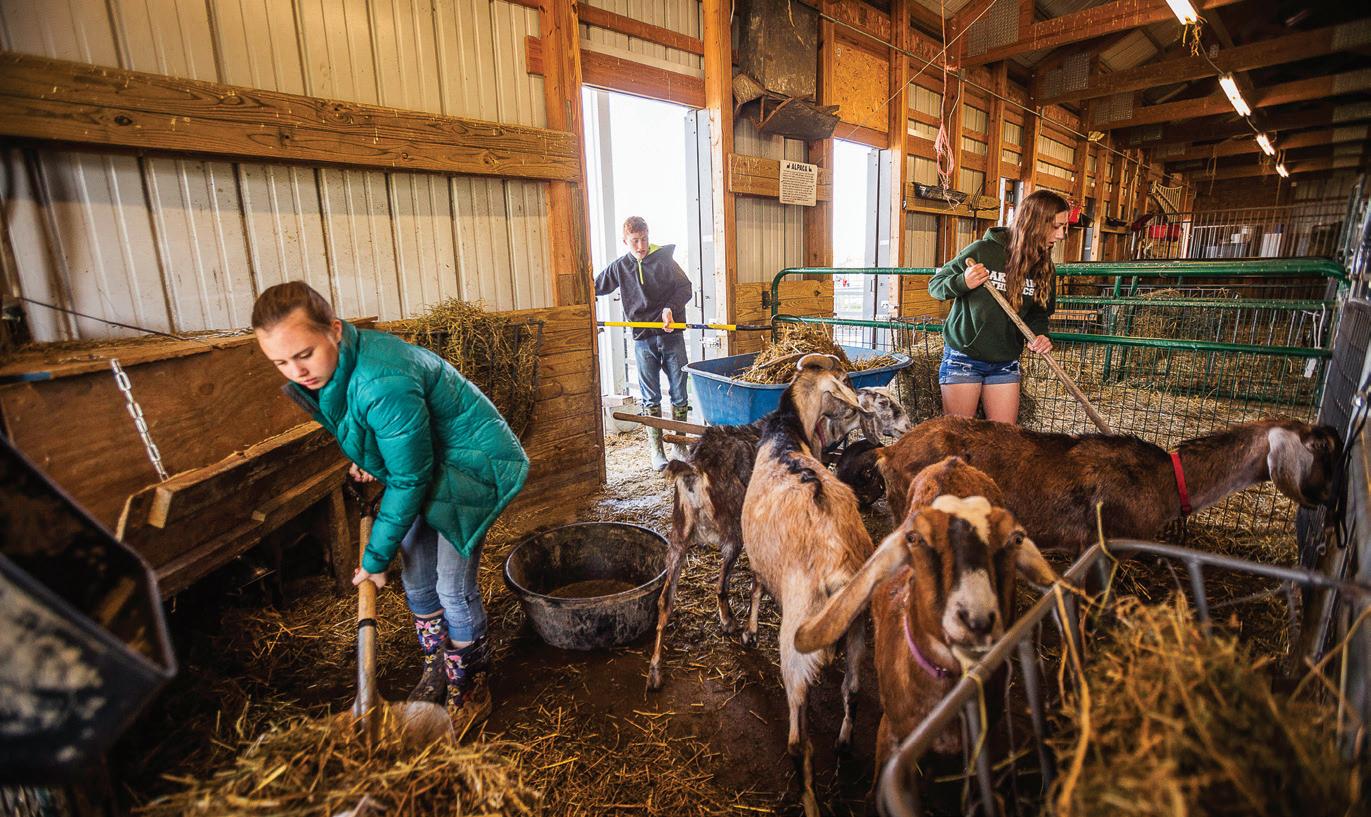
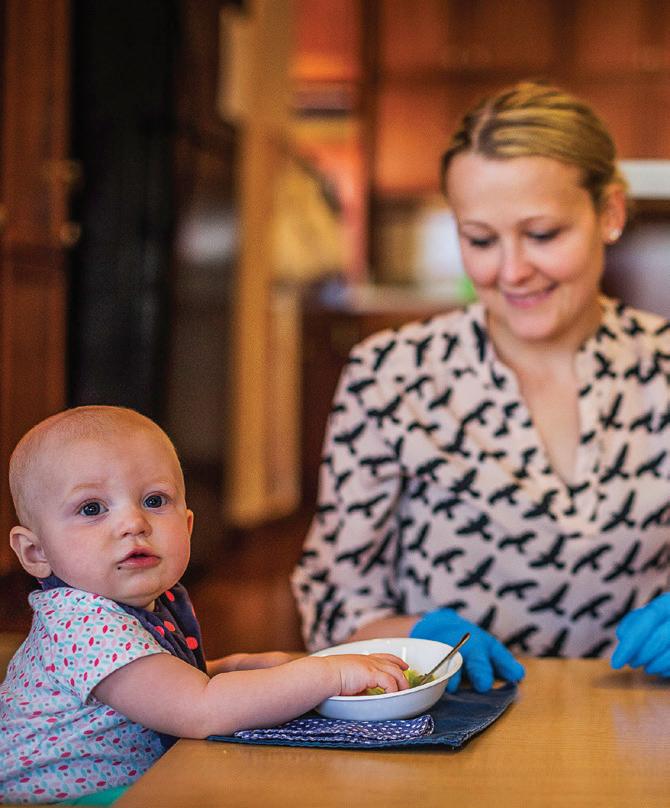
OAK FARM MISSION
We provide a Montessori environment that inspires children to reach their potential through meaningful work.
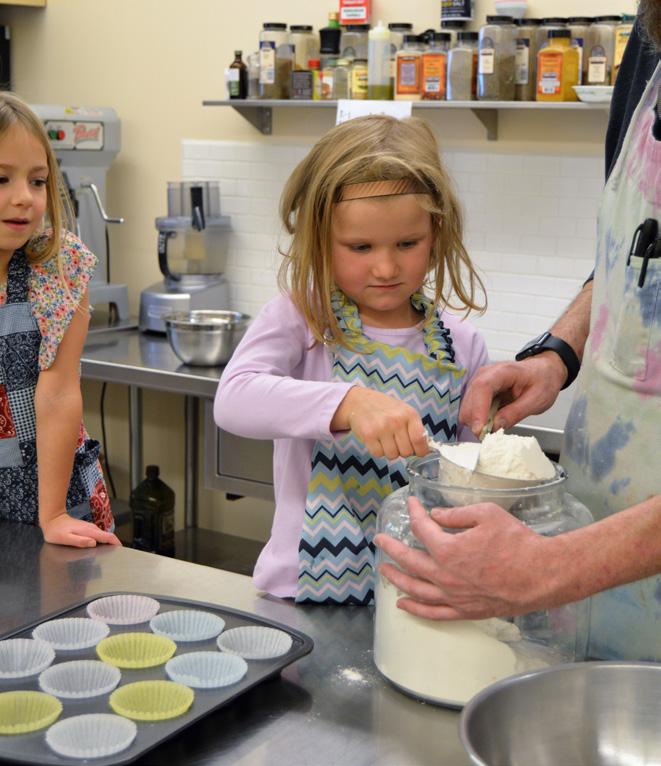
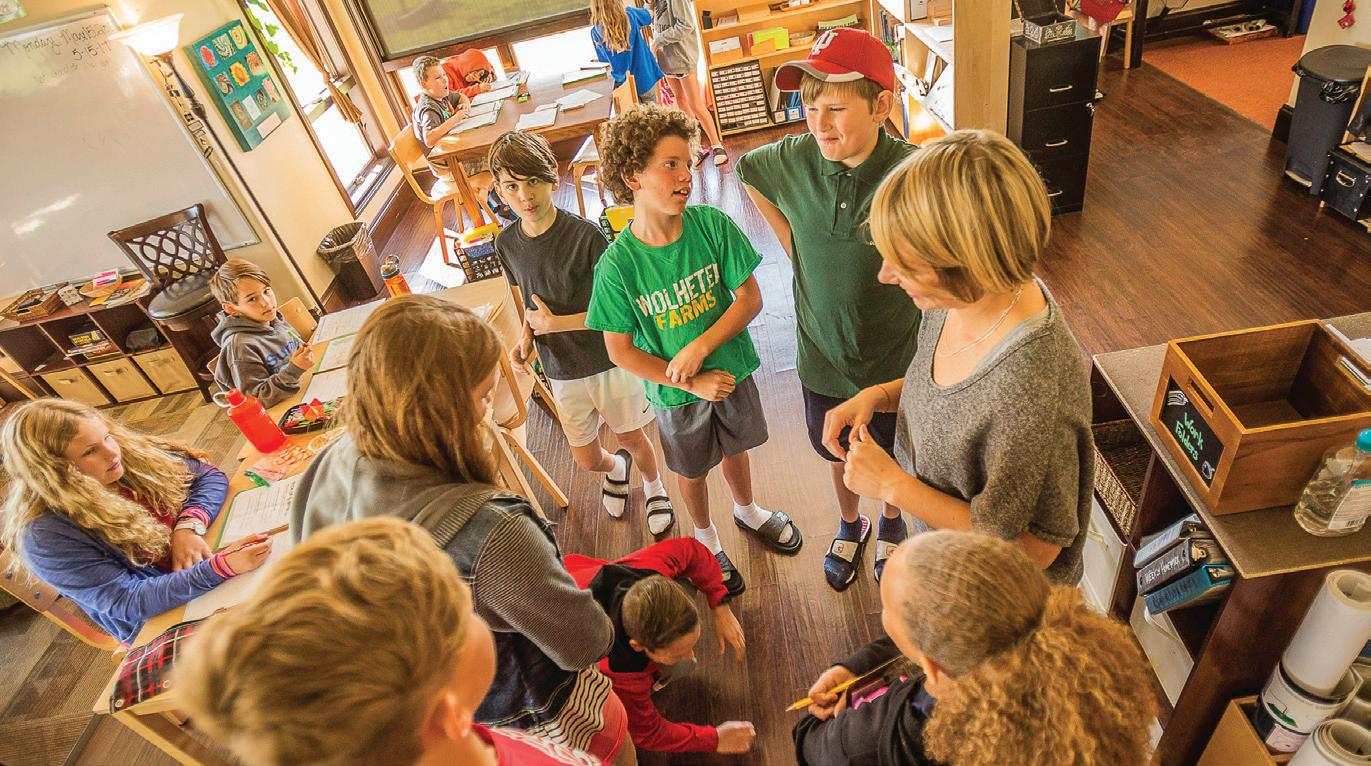
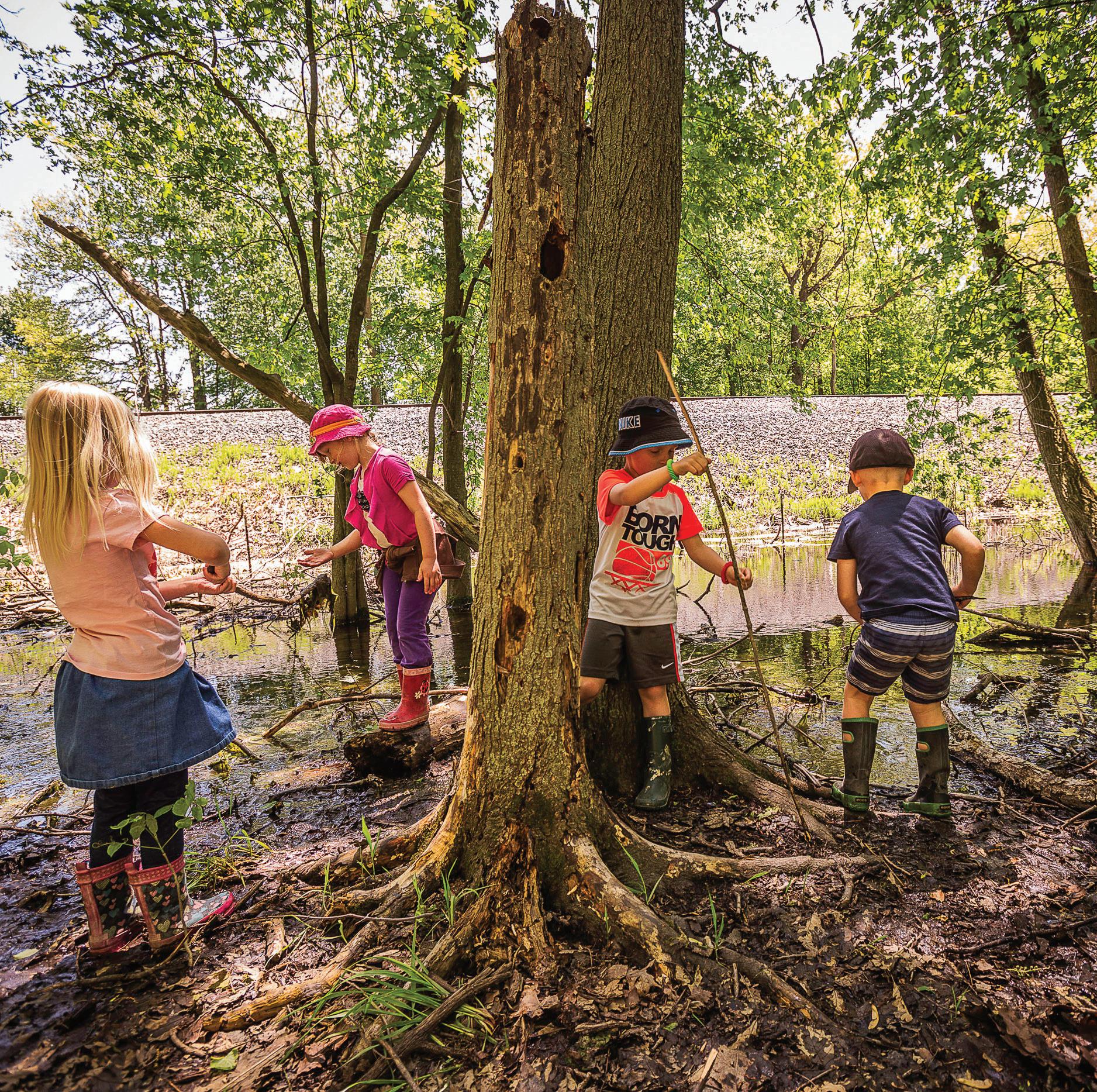
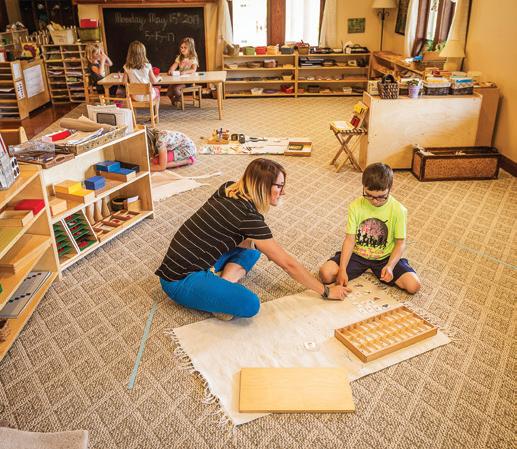
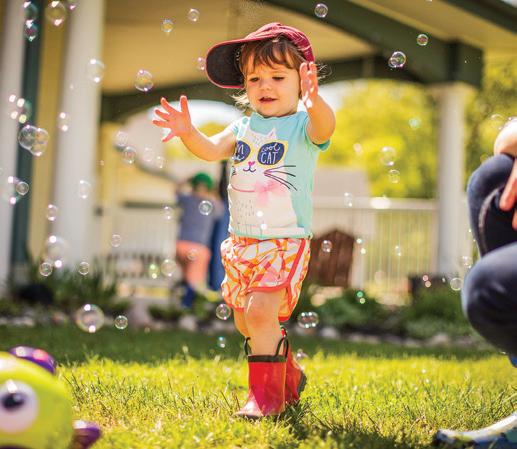

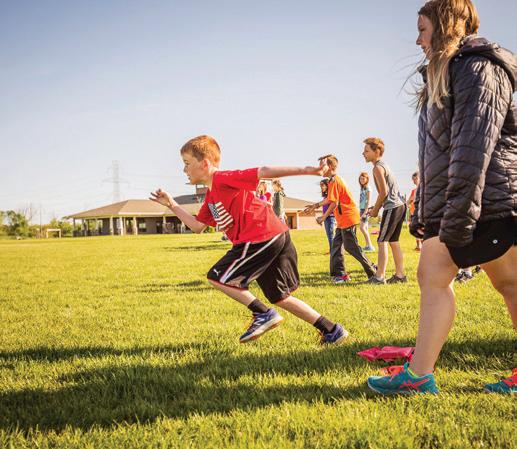




We provide a Montessori environment that inspires children to reach their potential through meaningful work.







“Only when I reflect on past roads taken, can I see the connection between myself and what was to become Oak Farm Montessori School. Traditional schooling never made that much sense to me, so I am sure it is with great surprise to those who knew me as a student, that they would one day find me starting a school, one I would teach, administrate, and lead to be a model of excellence. I would ask myself, ‘How many people find school meaningful? How many do well in our current system, and is it possible others would want something different for their children as well?’”
Lorene Salsbery Dekko, FounderEducation at Oak Farm Montessori School is based upon the philosophy and work of Maria Montessori (1870-1952) , an Italian physician and educator who developed her educational philosophy while working initially with children from low income families in the slums of Italy in the early 1900’s. Dr. Montessori’s discovery, that children teach themselves through their remarkable ability to absorb knowledge through meaningful work and from their surroundings, served as the inspiration and basis for her lifelong pursuit of societal and educational reform, curriculum development, psychology, teaching, and teacher training.
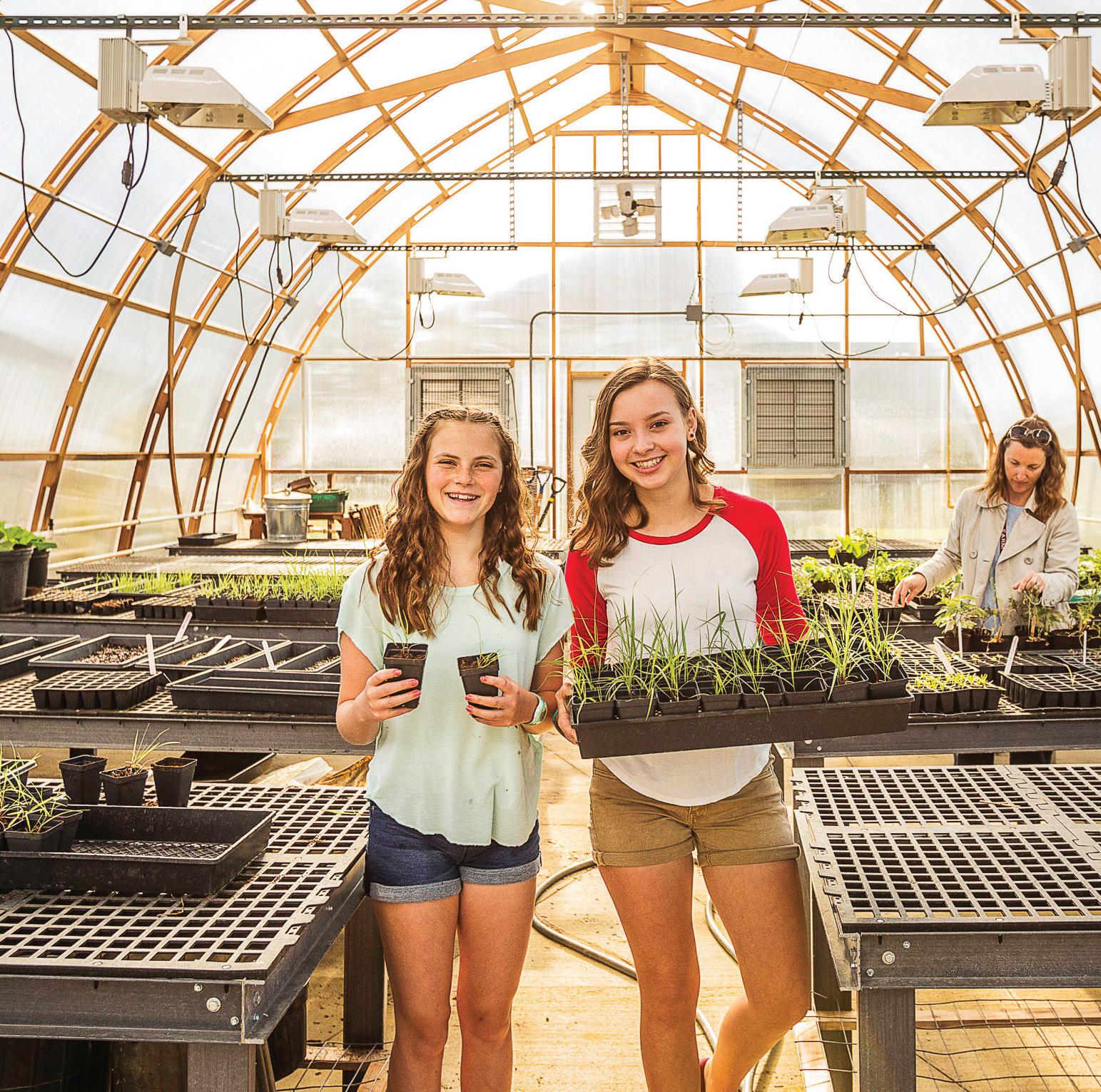
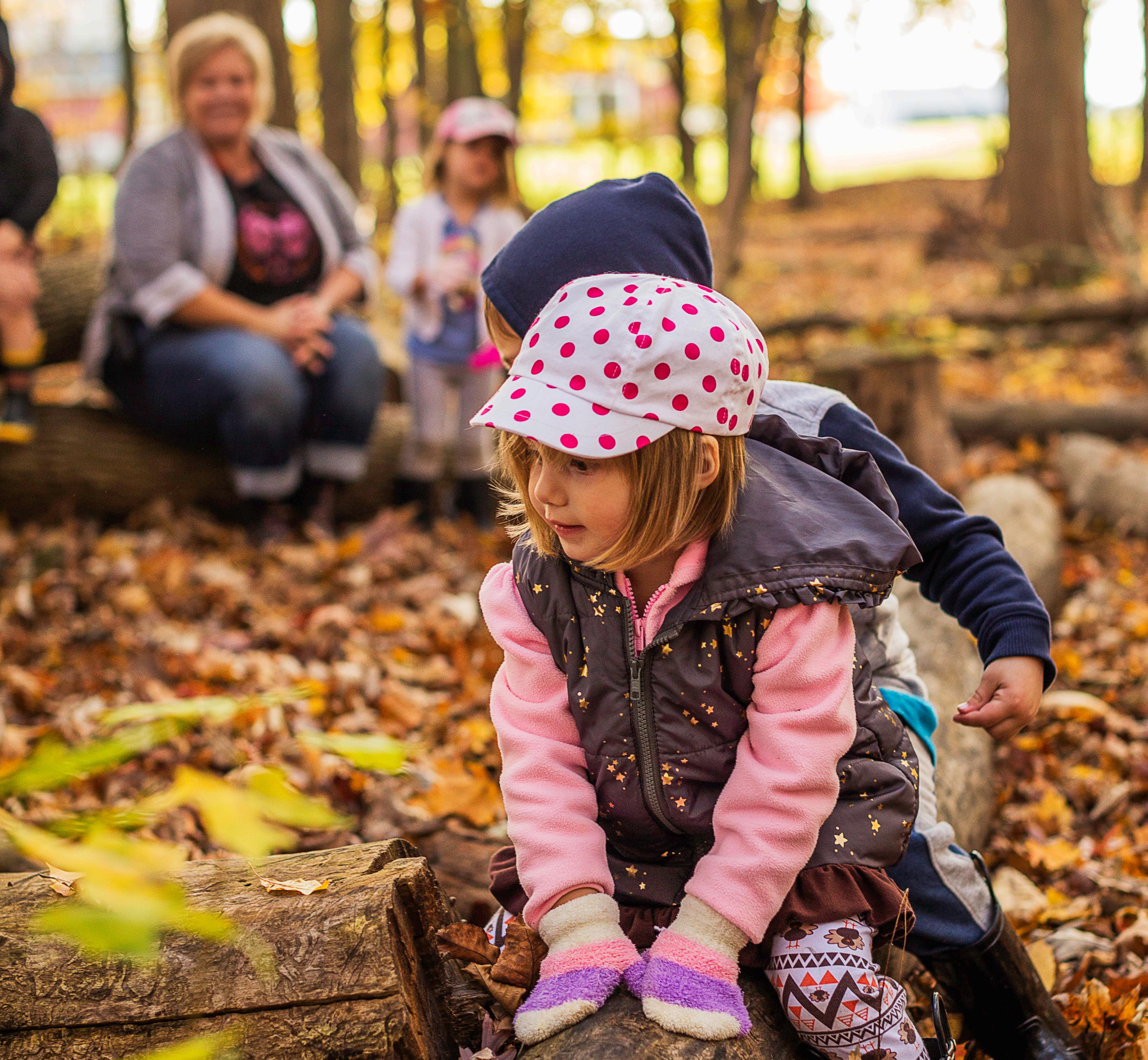
• ISACS (Independent Schools Association of the Central States) and AMS (American Montessori Society) accredited
• Independent, non-sectarian, co-educational
• Montessori curriculum
• Serve students infants through 12th grade Bus service to North Fort Wayne ages 3 and up
• 150+ Acres
• Multiple buildings across campus,consisting of classrooms, animal farm, greenhouse, bike shop, wellness centers and two art centers.
Five decentralized libraries
• Six areas for physical education
• Outdoor ecology curriculum
• Over 50 acres of prairie, wetland, orchard, savannah and wooded areas
• 70+ full and part time faculty
Average student to teacher ratio 1:12
• All classrooms led by a Montessori certified lead teacher
Fine Arts & Music program beginning at the Kindergarten level, including dance space, STEAM Makerspace and theater
• Athletic team sports beginning in 4th grade including soccer, cross country, golf, basketball, track & field.
• After school clubs and summer camps
• Regulation soccer field, cross country course, high school basketball gym; as well as, outdoor spaces and activities.
• IHSAA affiliated school
• Over $400,000 in financial aid made available to qualifying families.
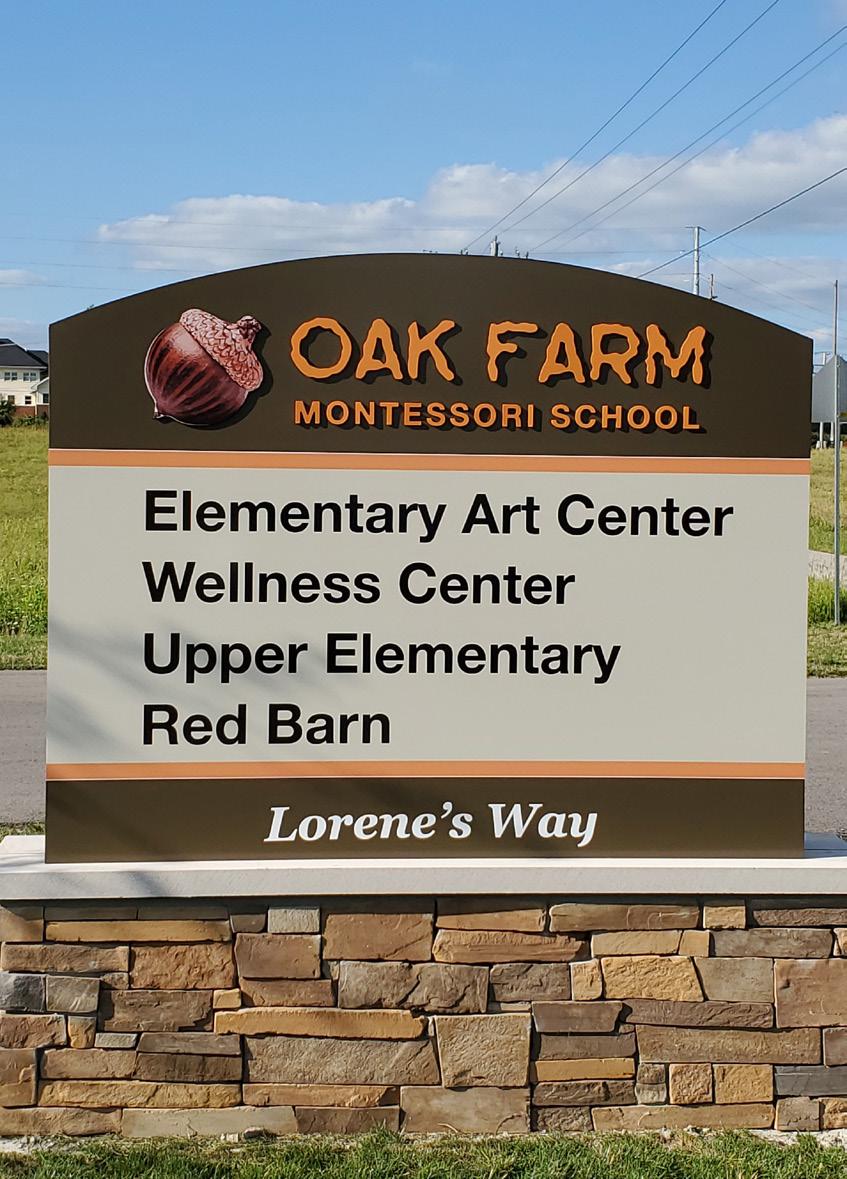
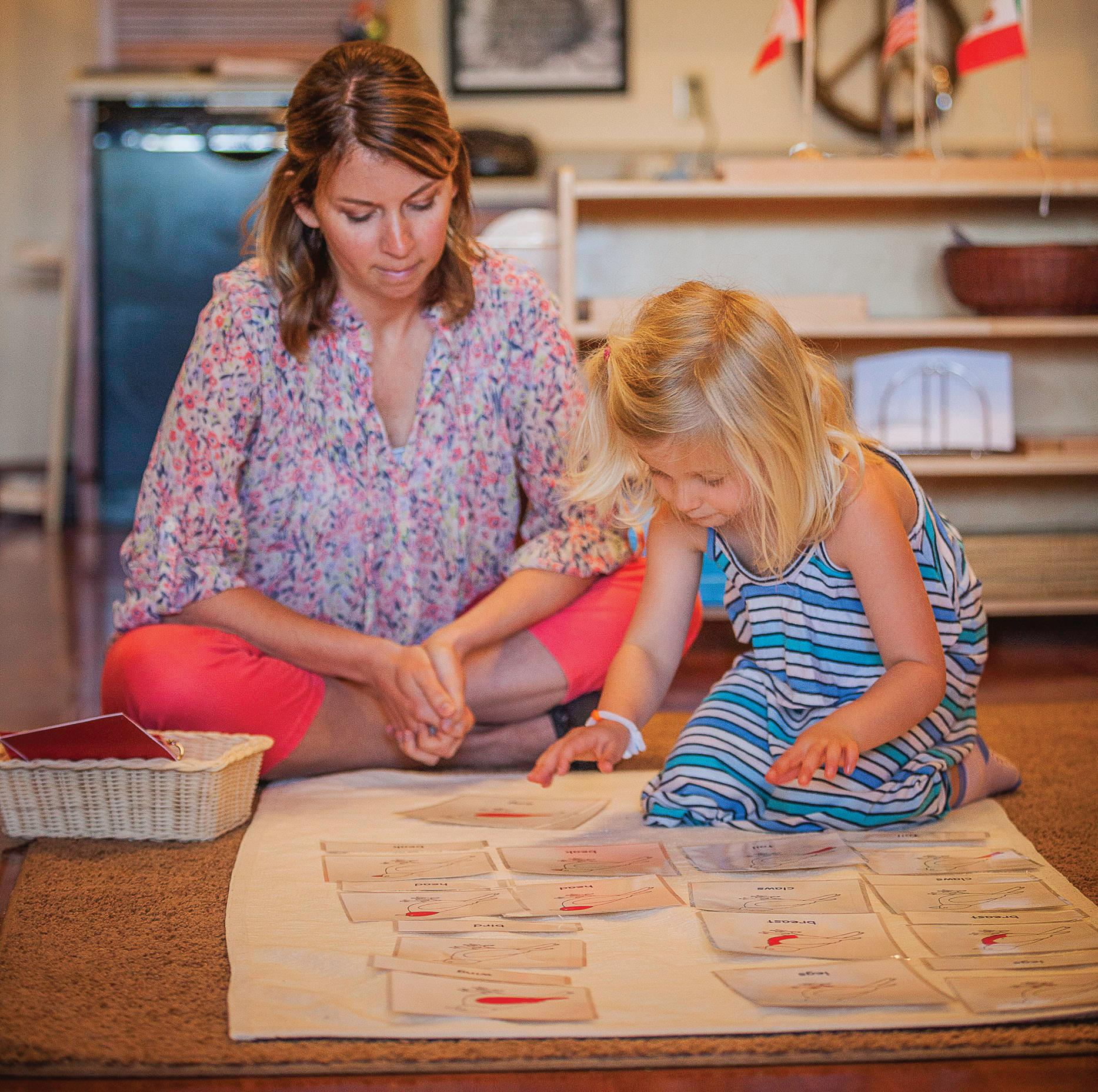
1. Movement and Cognition that movement and cognition are closely entwined, and movement can enhance thinking and learning;
2. Choice that learning and well-being are improved when people have a sense of control over their lives;
3. Interest that people learn better when they are interested in what they are learning;
4. Avoiding extrinsic rewards that tying extrinsic rewards to an activity, like money for reading or high grades for tests, negatively impacts motivation to engage in that activity when the reward is withdrawn;
5. Learning from and with peers that collaborative arrangements can be very conducive to learning;
6. Learning in context that learning situated in meaningful contexts is often deeper and richer than learning in abstract contexts;
7. Teacher ways and child ways that particular forms of adult interaction are associated with more optimal child outcomes; and
8. Order in environment and mind – that order in the environment is beneficial to children.
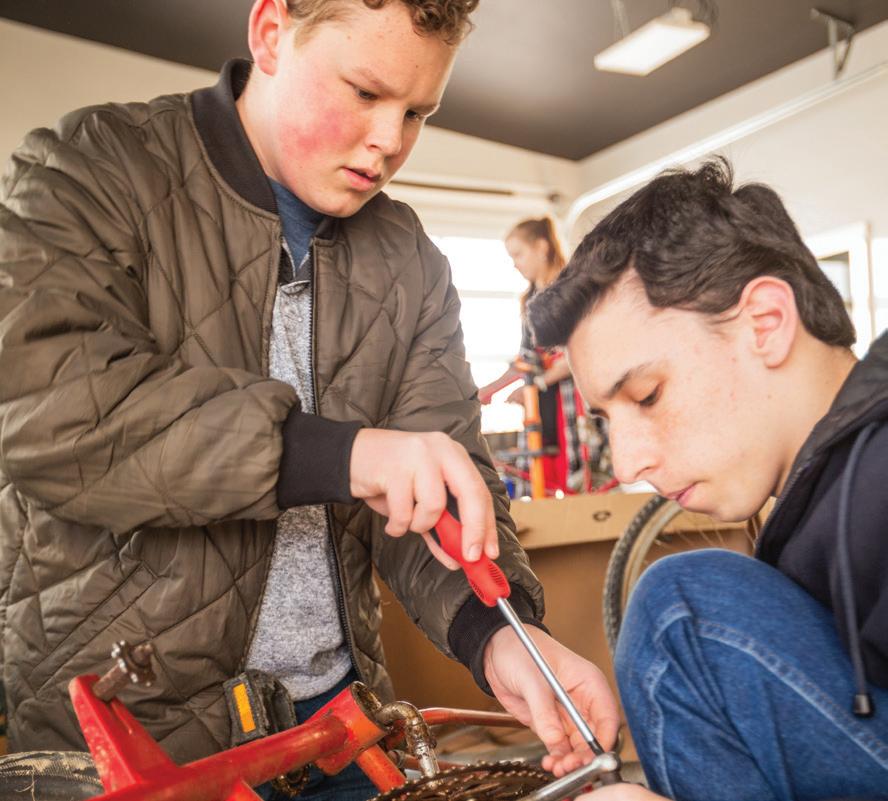
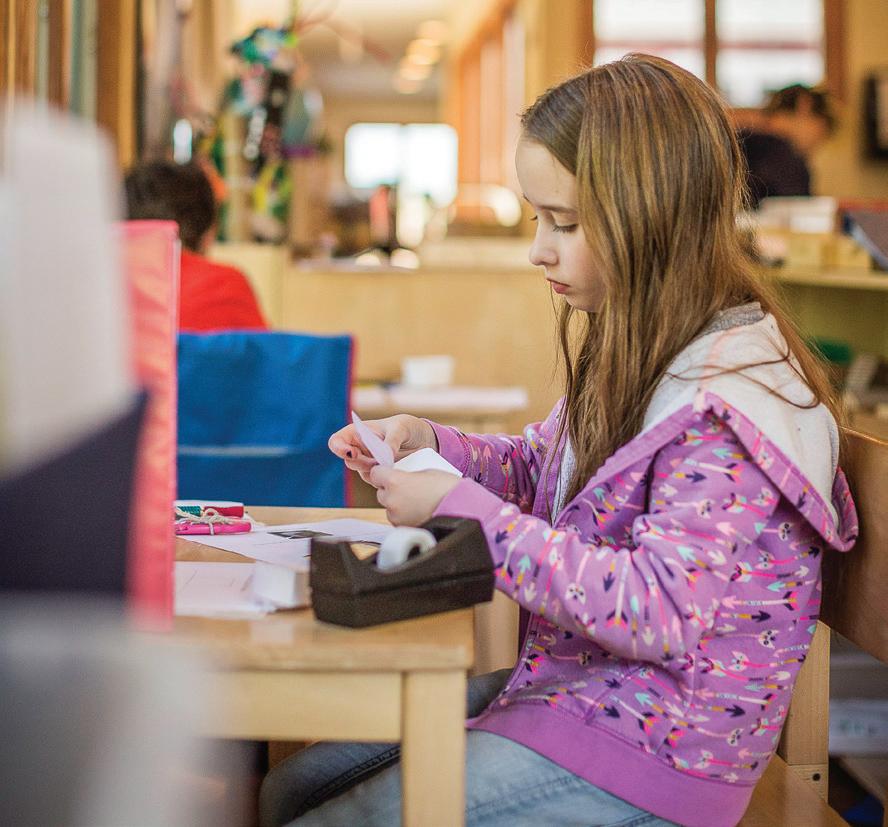
Early Childhood:
Infant • Ages 6 weeks to 18 months
Toddler • Ages 18 months to 3 years
Primary • Ages 3 to 6 years
Elementary:
Lower Elementary • Grades 1-3
Upper Elementary • Grades 4-6
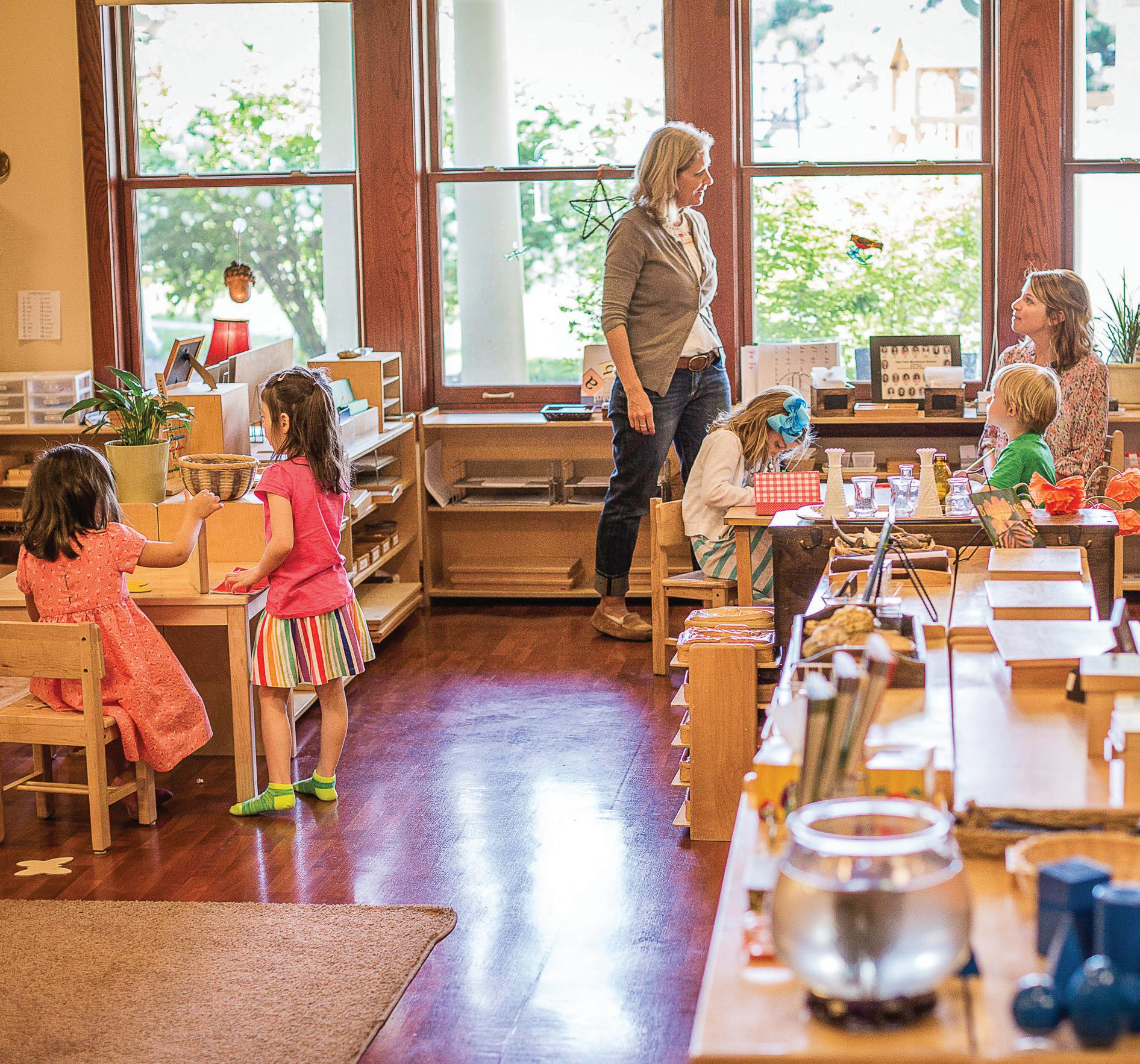
Secondary:
Middle School • Grades 7-8
High School • Grades 9-12 (by 2021)
The first six years of life are marked by tremendous physical and psychological growth, exploration and development. Infancy is an unconscious period of development. Physically, the body develops while psychologically, the child is a concrete thinker, taking in everything around her.
Dr. Maria Montessori termed this plane, “the time of the absorbent mind.” She believed that more learning takes place at this stage of life than during any other. Children begin to acquire language, develop cognitive and motor skills, begin to imitate the adults around them, and develop expectations of the world around them.
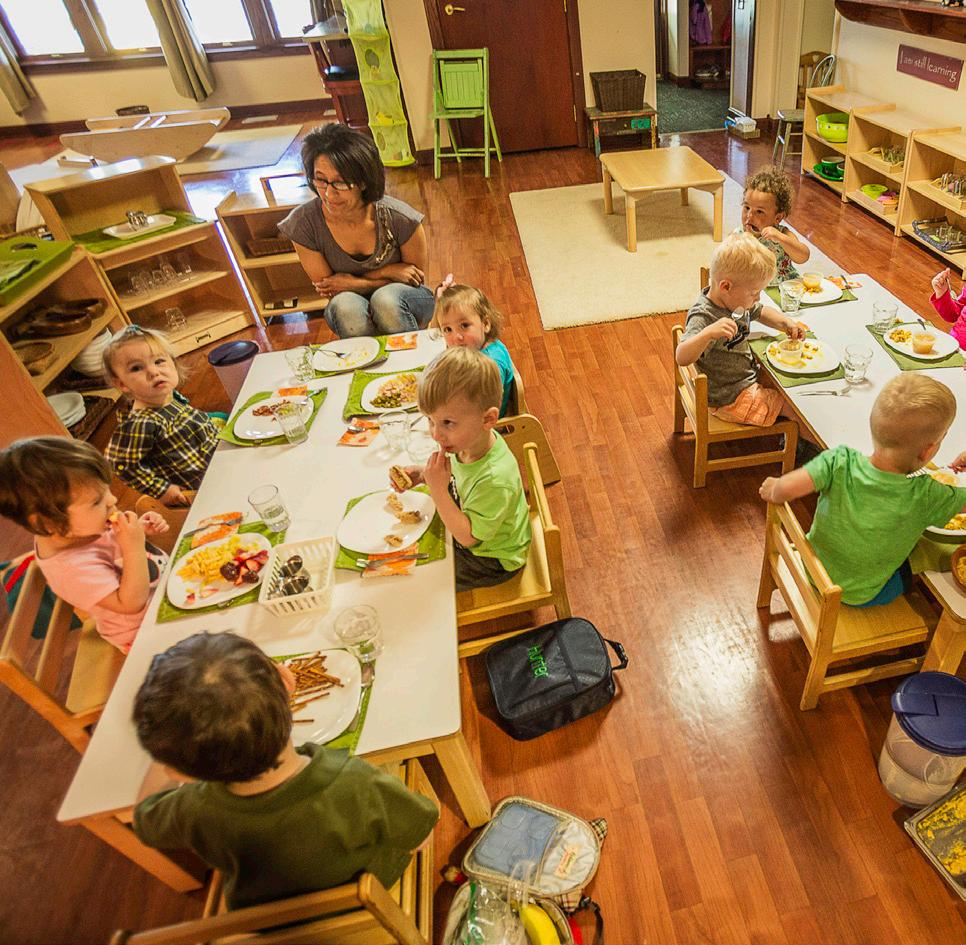
great need for love, understanding, and empathy. They need clear information, logical limits, flexibility and support in a consistent and challenging environment which focuses on and responds to the rapid changes of their age. As they grow, they are developing a sense of self-trust as well as a trust in their environment.
“Education, therefore, of little ones is important, especially from three to six years of age, because this is the embryonic period for the formation of character and of society, (just as the period from birth to three is that for forming the mind, and the prenatal period that for forming the body).” A
Dr. Maria Montessori, The Absorbent MindToddlers are children in transition. They have particular needs and abilities that can best be aided through the specially prepared Oak Farm Montessori toddler environments. Toddlers have a
Dr. Montessori working with children age three to six was able to observe the unconscious mind unfold. She wrote in The Absorbent Mind, “… being able to now tackle his environment deliberately and consciously, he begins a period of real constructiveness.” Through scientific observation, Montessori followed the lead of the children, trusting in their natural instincts and abilities to learn and grow without adult interference. She watched as they used her materials to teach themselves and to then turn around and teach their peers. This is the time of conscious construction. The child, in these three years, constructs the adult he is to become.
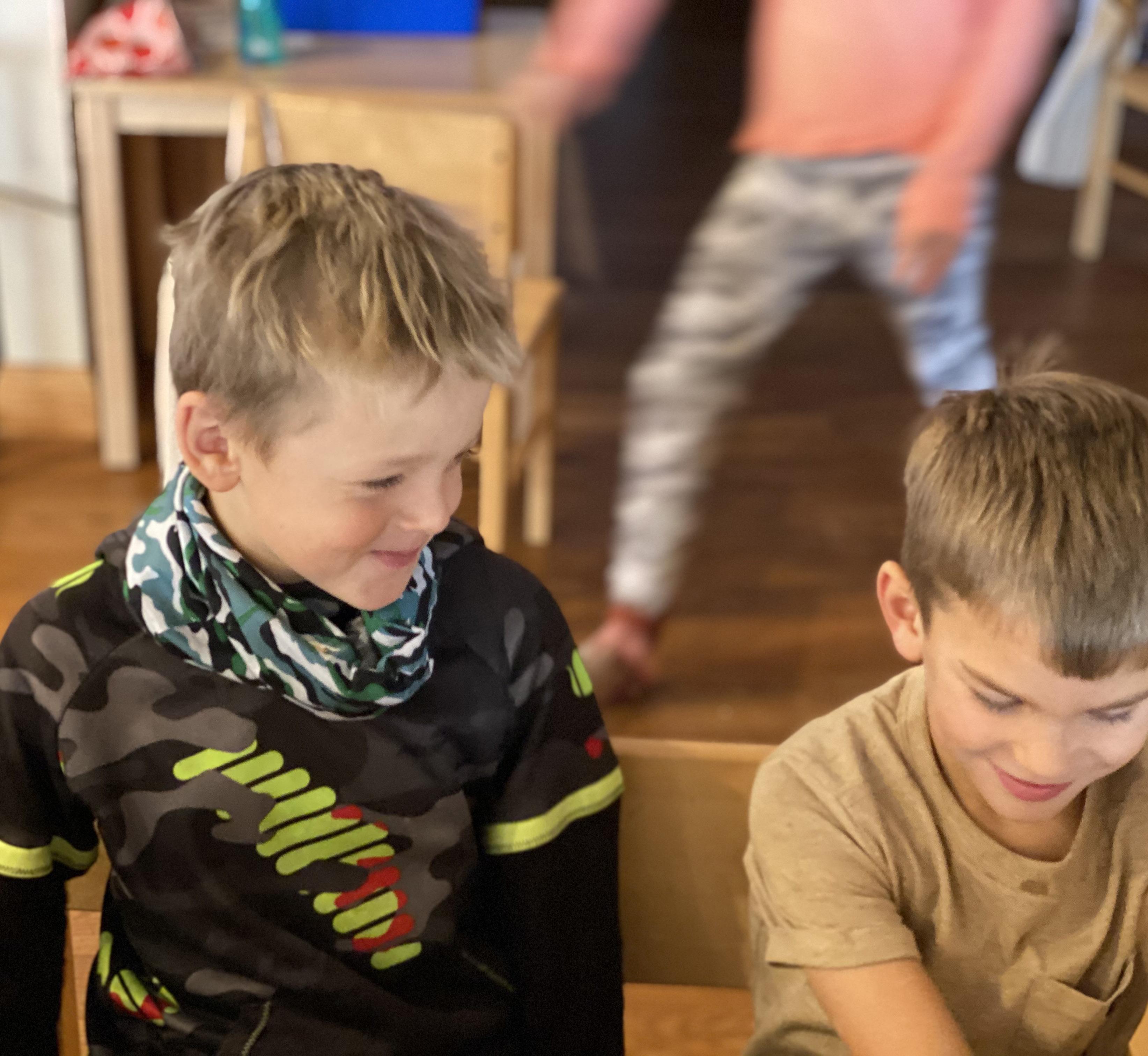
The Montessori Lower Elementary classroom is a uniquely personal and dynamic educational environment that begins the second plane of development. Through independent, self-directed study, elementary students actively reinforce the knowledge and skills acquired in the Primary environment. They are viewed as individuals and work in partnership with a teacher to develop a personal lesson plan. Once their plan is complete, they will be given lessons to meet their interests as well as being exposed to the full scope of the Montessori curriculum.
The elementary experience is a period of culture, where children are eager to learn about their own cultural heritage and that of people around the globe. It is also a time of imagination, which makes it possible to introduce subjects ranging from the study of microscopic creatures to the analysis of distances between galaxies. Students move from experience with concrete objects to more abstract knowledge through research. Dr. Montessori identified helping children understand the world around them and their responsibility toward it as a significant goal of the elementary program. She saw education as the means for transforming our world into a place of peace. This goal can only be met through strengthening the students’ ability to classify, understand, appreciate, and empathize with the world, the people, and its history.
In the Upper Elementary environment, students of nine to twelve years of age are transitioning into adolescence. While children in this age group show striking variance in their physical development, they are actually quite similar to one another. They are adamant about their desire for independence, but they require organizational and emotional guidance. A key difference between Upper and Lower Elementary students is the power of abstraction.
Children in Upper Elementary are still inquisitive, community oriented, and universally aware. They continue to question all aspects of the world in which they live, and use their minds to reason and to conduct research; however, their reasoning may also become more abstract and their research more specific. In accordance, the curriculum allows for an exploration of a range of topics with opportunities for depth of study. Students may participate in lessons that include the history of mathematics or languages, chemical reactions, algebra, geometry, and literature, just to name a few. Lessons on note taking and opportunities for choosing various ways to demonstrate learning are an integral part of the curriculum in preparation for Middle School.

Adolescents between the ages of 12 and 15 belong to the third plane of development, and the primary goal for educators of this group is to guide adolescents’ valorization; the process adolescents must go through to integrate their newfound maturity and to reach a level of independence that will allow them to help themselves. The Oak Farm Montessori Middle School program approaches instruction in an intentional and purposeful manner. Since Montessori philosophy views adolescence as a period of great transformation and extraordinary potential, the program must serve the vital needs of adolescents through work that challenges both the mind and the body. Following Dr. Montessori’s writing on adolescence and her concept of “Erdkinder” which translates to “children of the land,” a major focus of the Middle School
community is time spent on the land and sharing the responsibilities of farmwork. The supportive teaching staff creates a prepared learning environment to empower adolescents to set and exceed their own goals while to engaging in real community experience and meaningful, noble work.

Oak Farm High School (OFHS) is an innovative place for 14-18 year old students to prepare for life’s opportunities. The program provides opportunities for students to gain academic skills, self-confidence, self-knowledge, and practical life skills for adulthood in a supportive community. The curriculum is an integration of the current research in adolescent brain development, educational best practices, S.T.E.A.M. and the Montessori philosophy. OFHS exceeds the Indiana State High School Diploma requirements with rigorous, relevant, cross-curricular academics and real world application in all subject areas including internships, expert mentors for students and opportunities to explore individual passions. OFHS educates young adults according to the Montessori principles of meaningful work, respectful
community, personal self-expression and practical life skills. Students are able to explore their world, think creatively and achieve independence in the state of the art Bike Shop, InnoLab, Science Lab and seminar spaces as well as throughout the world in field studies and intersessions. The purpose of study is to participate fully in one’s community and help move society toward a positive future; therefore, adolescents are motivated to gain expertise and truly work toward developing skills needed to reach their full potential.
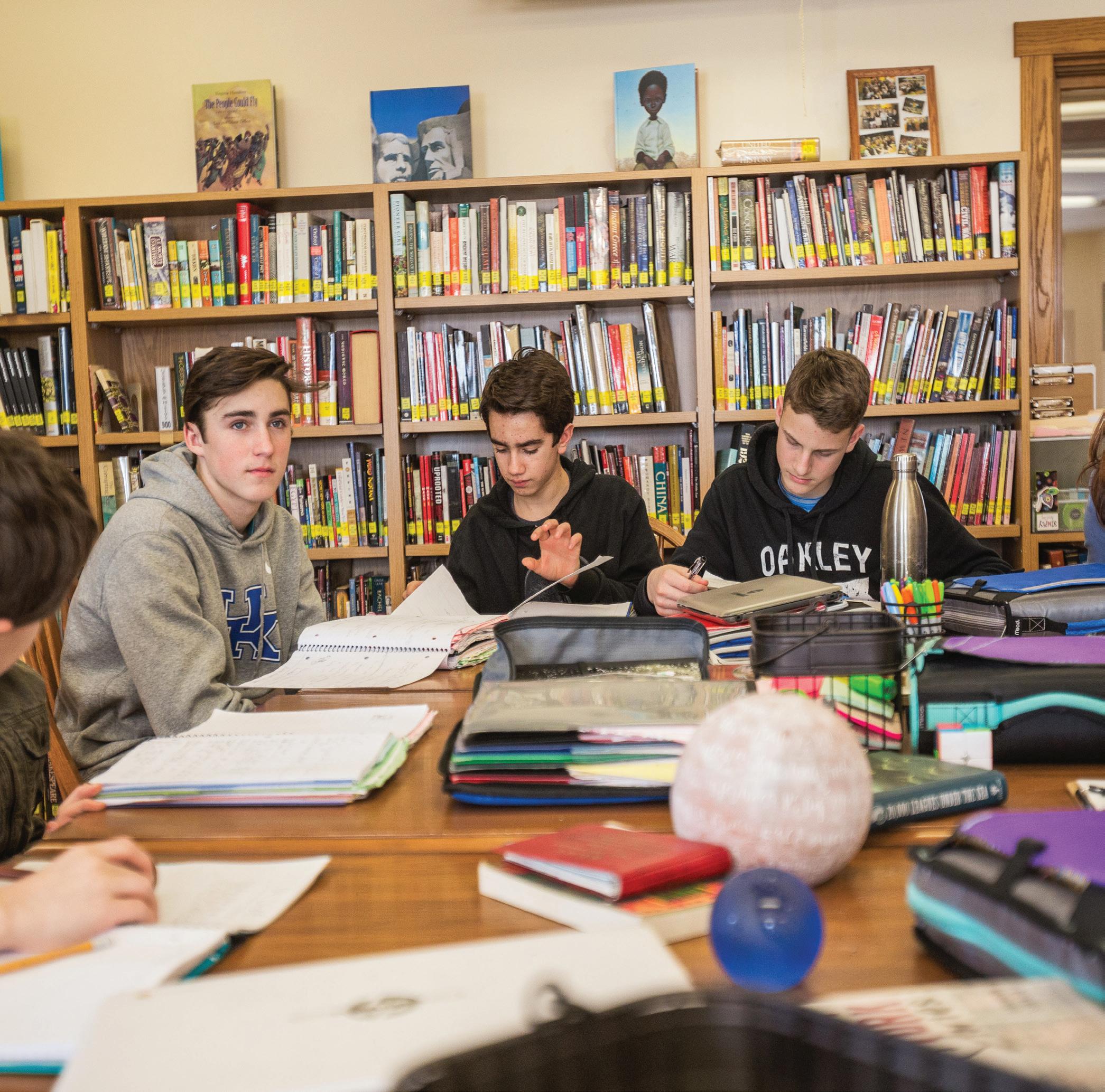
Dr. Maria Montessori observed that a child learns each skill best in isolation of other skills with real-life applications and with increasing difficulty and repetition. She also advocated “following the child”; that is, giving the right lesson at the right time and allowing the child to participate in her own progress. Montessori developed a continuum of lessons, organized in a spiral fashion from level to level, and specific learning materials tailored to the basic philosophy and instruction that she advocated.
The Montessori curriculum is an integrated approach where diverse concepts are presented across the curriculum and in different ways as the children progress through the grades. One outcome of this approach is that children have repeated opportunities within different contexts to practice skills being learned; another is that this approach emphasizes the interconnectedness of disciplines.
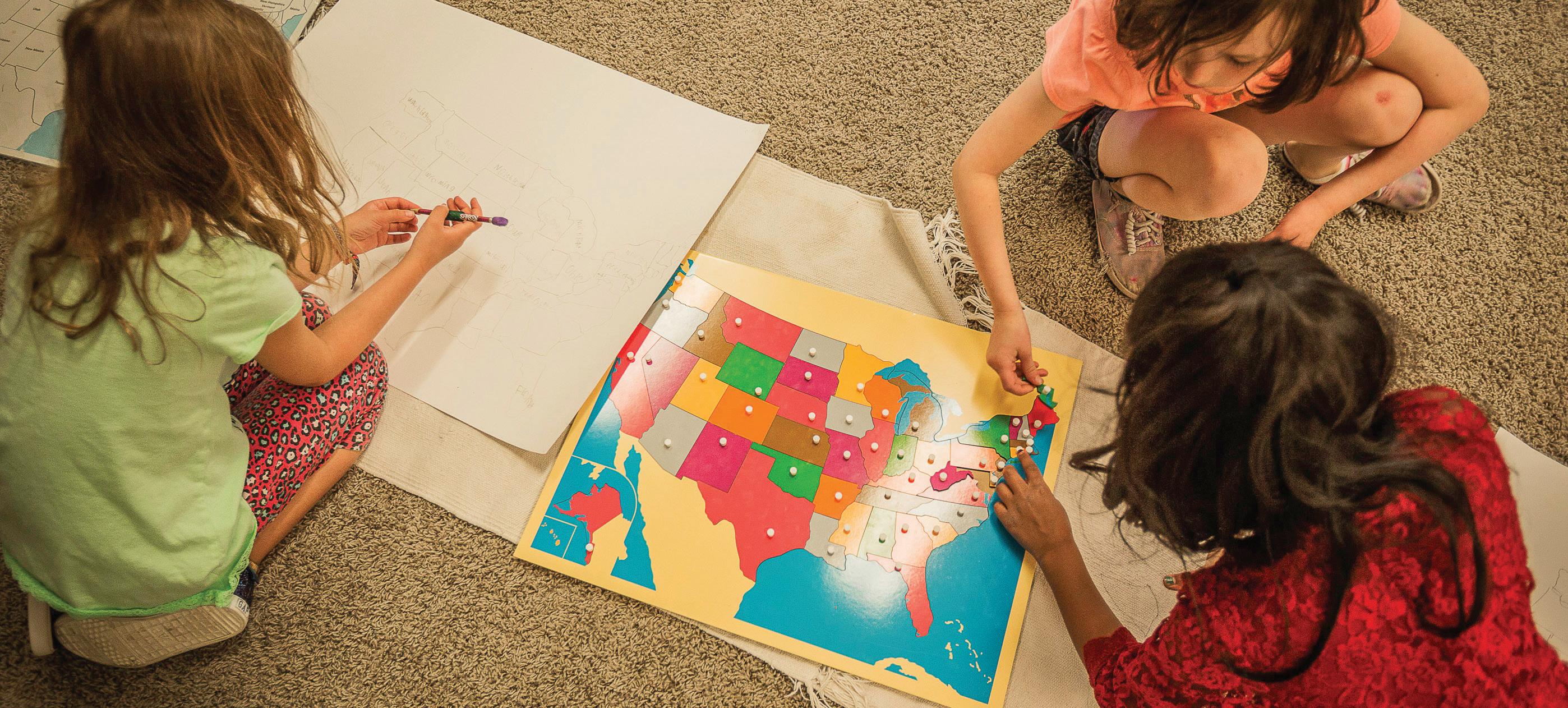
The Culture Curriculum is a subset of what Maria Montessori called “the Cosmic Curriculum.” The study of culture in a Montessori classroom integrates traditional subjects of science, history, economics, civics and geography. In order to understand why these subjects are taught under the same umbrella, one needs to understand the main concepts of “cosmic education.” Maria Montessori firmly believed that there was a purpose and an order to the universe. It was a “gift” to mankind to be treasured and protected. Each individual’s “cosmic task” is to render service to and protect the environment on which he/she is dependent for existence.
Specific skills are developed through culture studies:
• Geography study helps children develop spatial awareness and orientation skills.
• Science allows children to look at phenomena with a curiosity and a theory, then through observation and research to test for validity.
• History study builds in the child a clear sense of time passage which is the foundation of a welldeveloped historical perspective.
This pursuit has merit for children today as they learn to differentiate between theory and fact, and maintain a healthy interest in figuring out how and why things work.
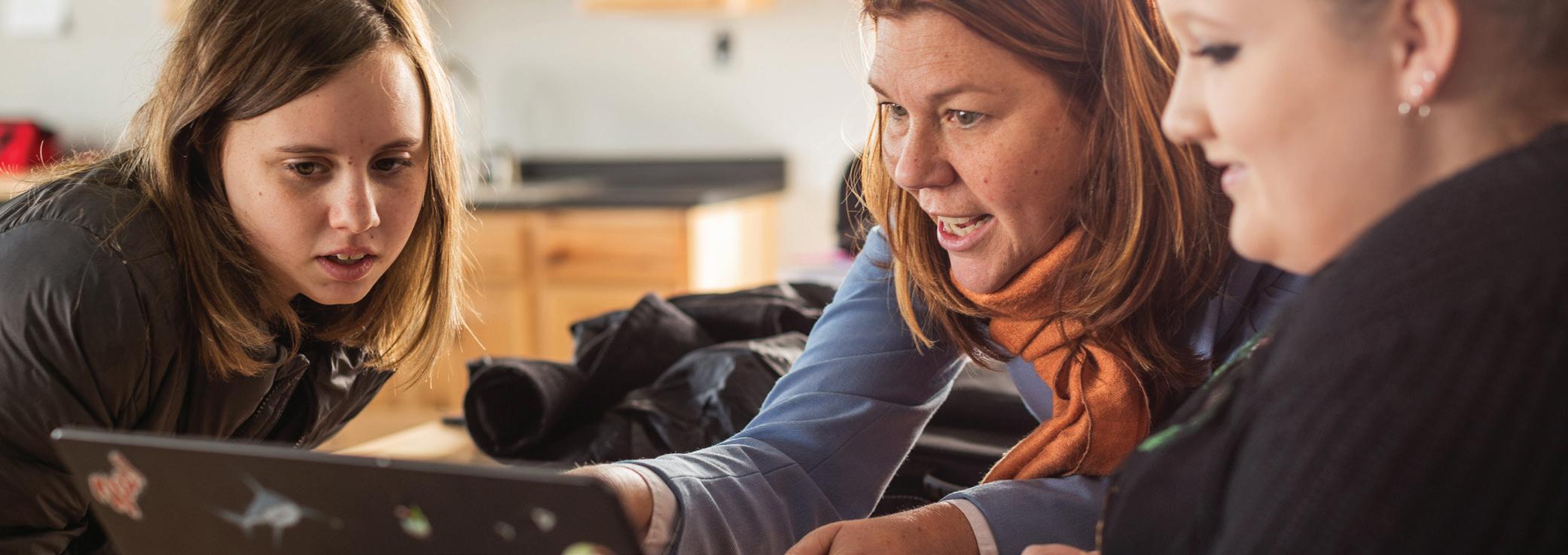
Language is the beginning of what we speak and learn. In the unique environment at Oak Farm, students work with materials that aid them in developing their vocabulary, listening, conversation, classification, writing, pre-reading, reading, and grammar skills. From Infants through High School, students have multiple opportunities to explore, create, and learn language.
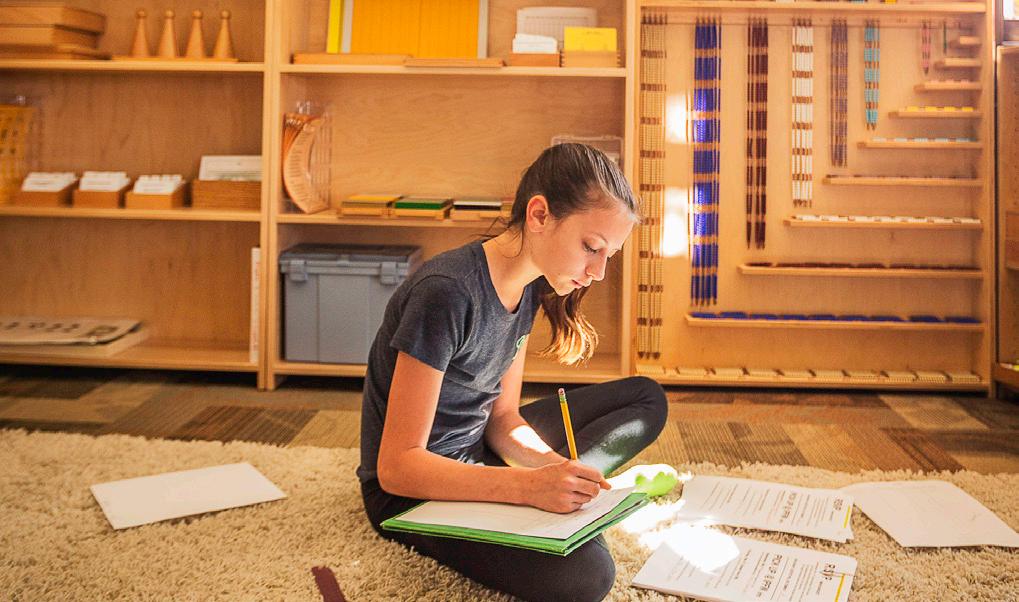
At Oak Farm, every developmental level supports learning through discovery. The math curriculum provides individual lessons, hands-on activities, and real-world application of arithmetic and mathematics. To support the development of each student’s logical, mathematical mind, all math work is sequenced from simple to complex, which creates a strong foundation for students to move from concrete to abstract work.
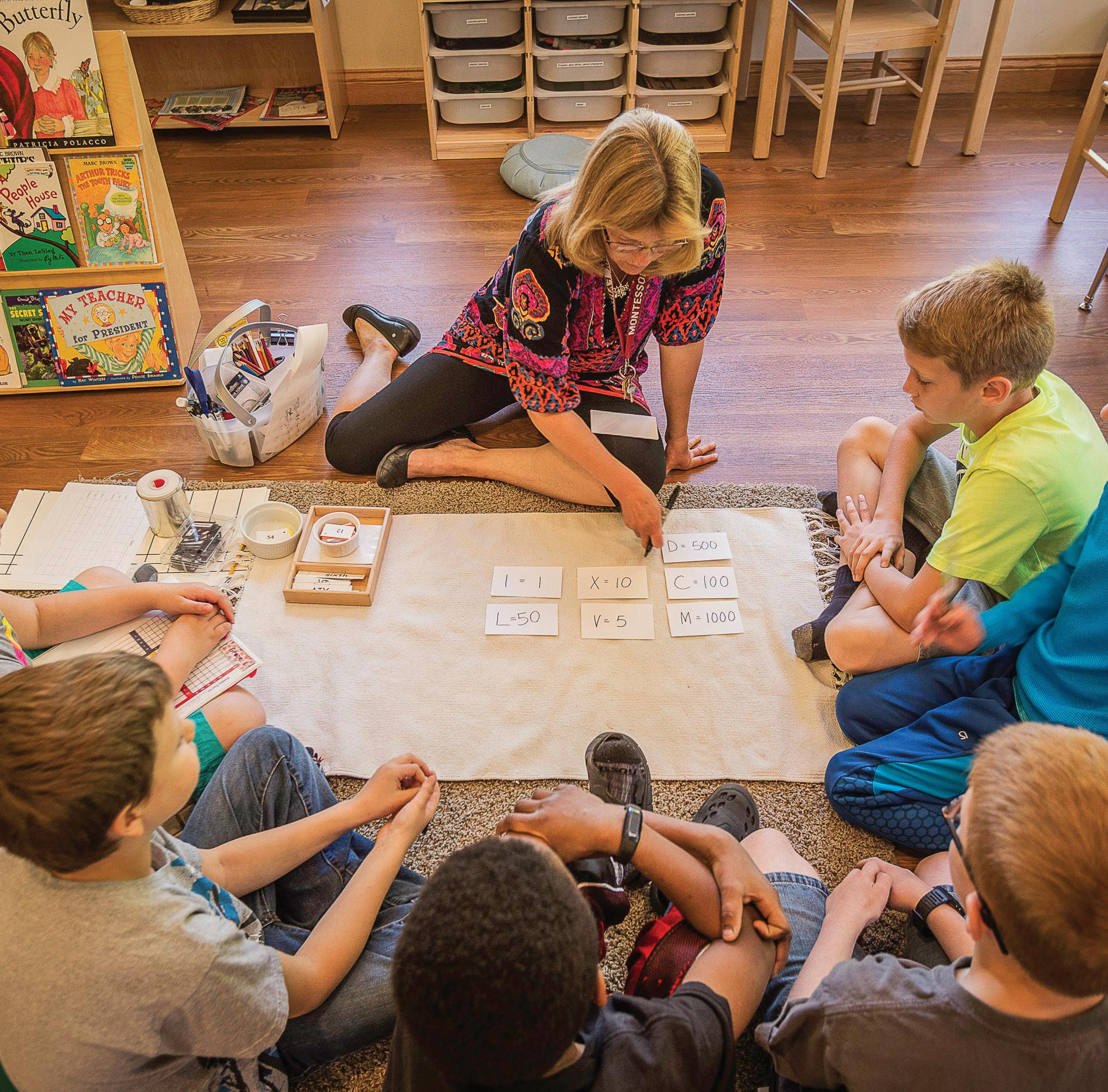
Oak Farm curriculum includes Art & Music programs beginning in the Kindergarten year. These are regarded as special subjects in our curriculum. Music lessons are cycled in three-year loops for students developing greater knowledge and deep-level thinking. Each level of music class builds on the skills and understanding from the previous level. Students engage in vocal as well as instrumental choices.
The art center at Oak Farm Montessori is a place students enter knowing they will be free to experiment and investigate a multitude of options while developing their own creative processes. It is of utmost importance to provide an environment in which students feel comfortable to explore materials, practice with real tools, and begin to understand new techniques in artmaking. Students are encouraged by both adults and peers to step beyond what is comfortable as they practice problem solving through inquirybased projects.
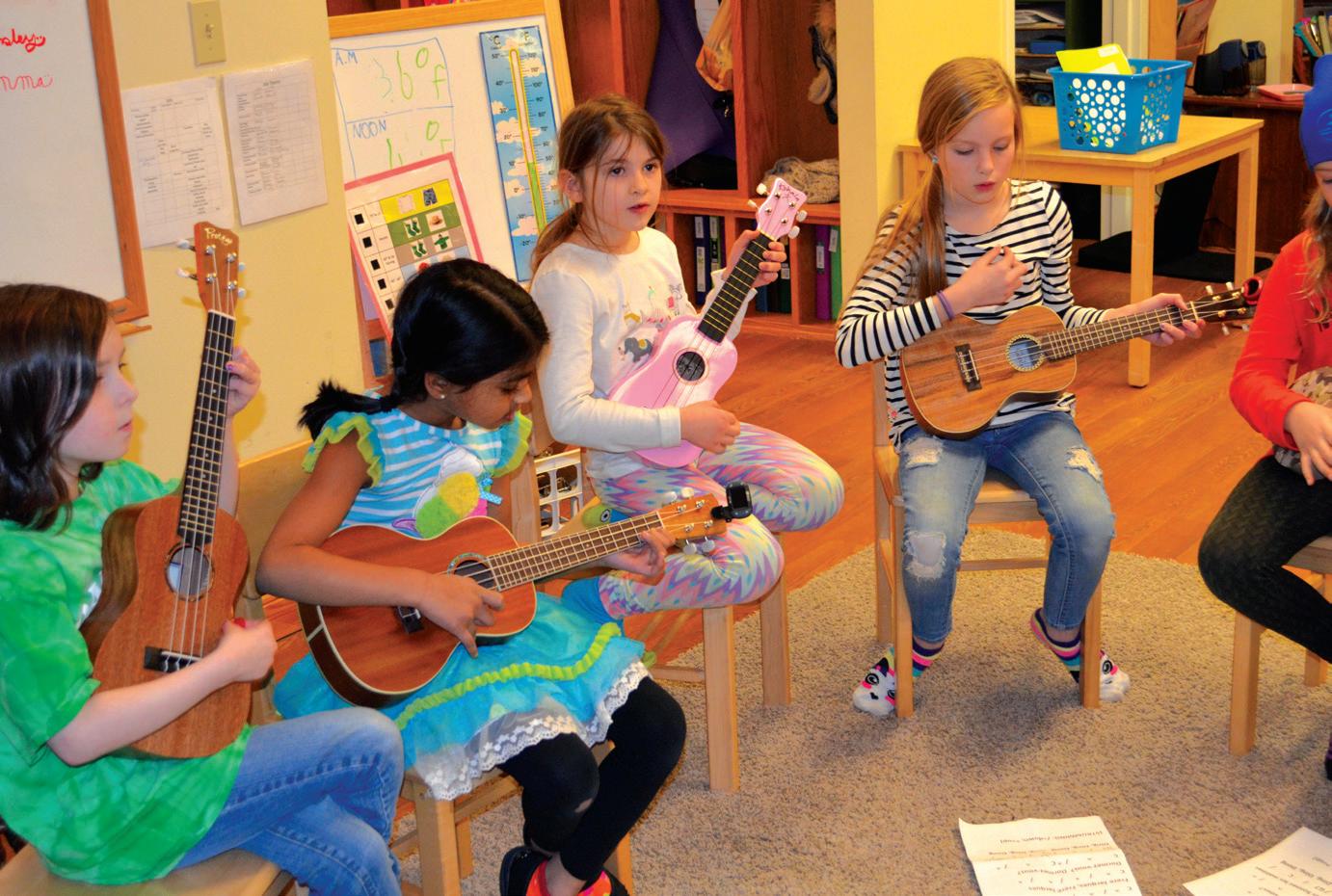
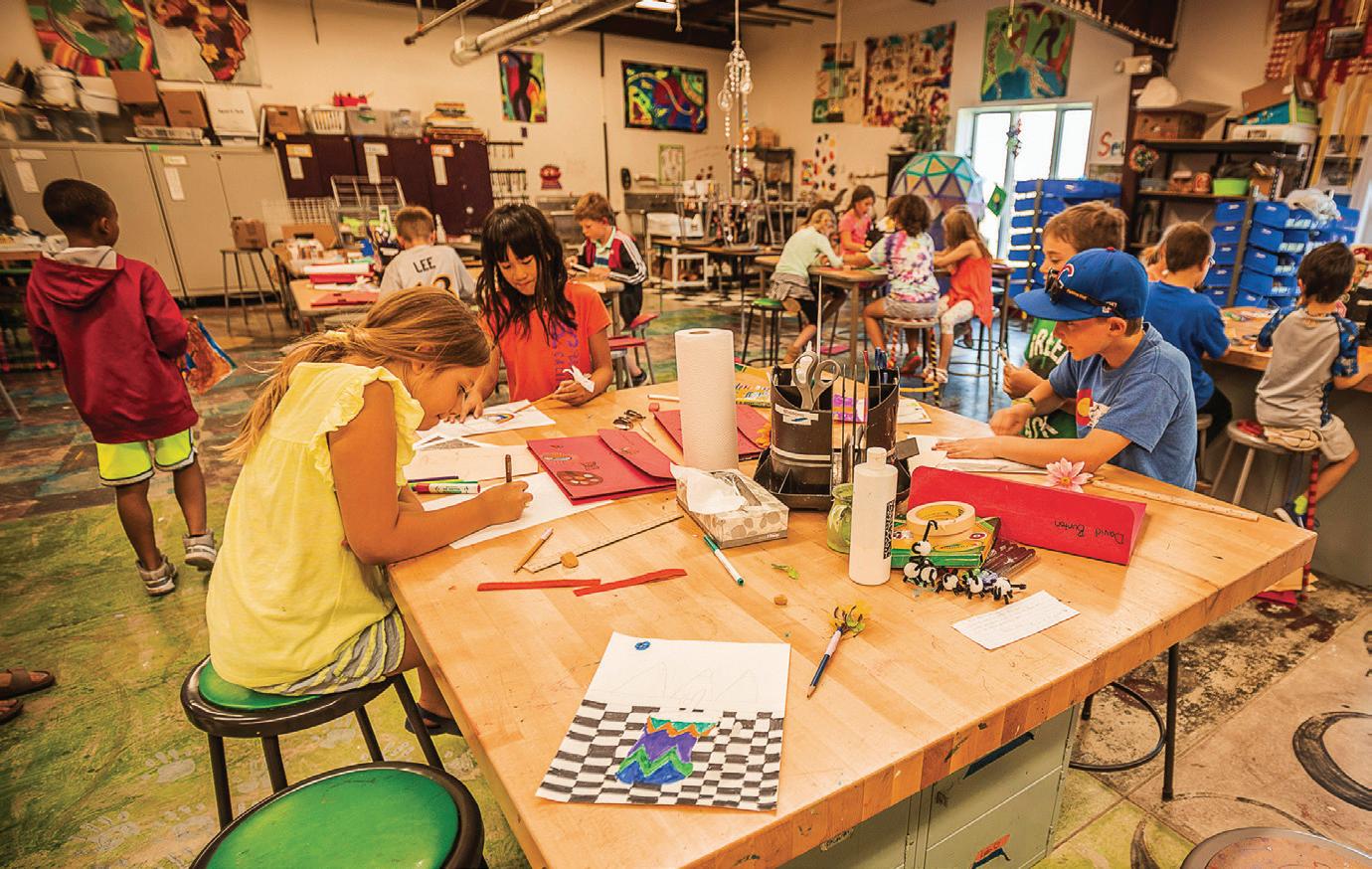
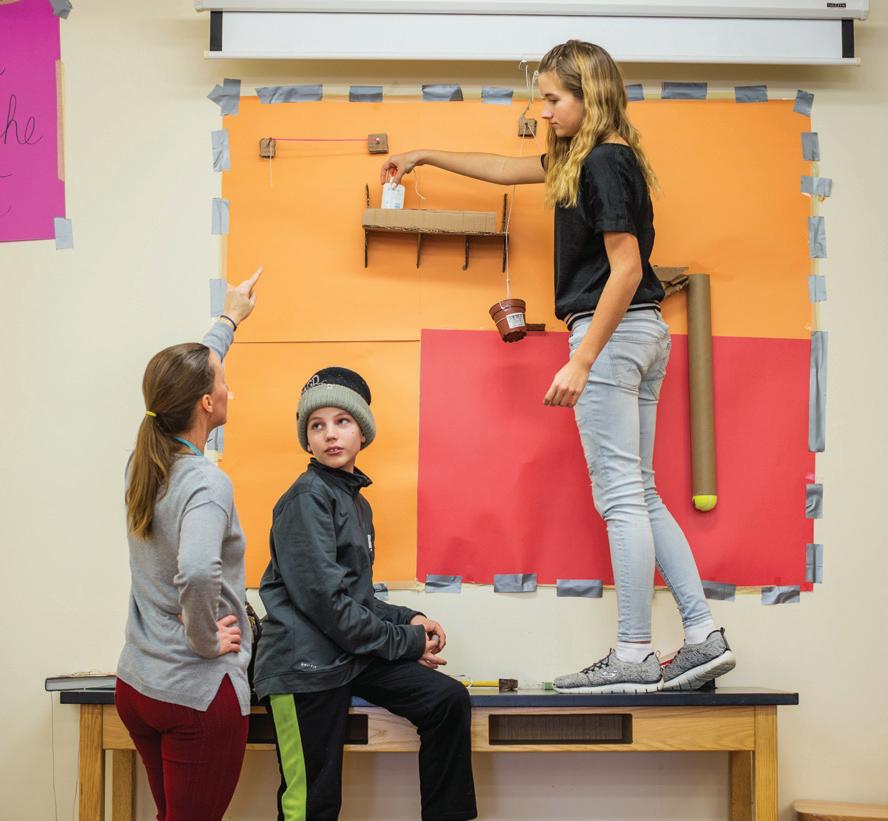
Ecoliteracy is the ability to understand the natural systems that make life on Earth possible and to respect and care for those systems. Our 100 acre campus is the perfect backdrop to expand environmental learning beyond the classroom. Infant through High School curriculum includes ecoliteracy themes and concepts. Ecoliteracy learning is just as likely to happen in the woods or a barn as it is in a classroom. Classrooms participate in ecological learning through activities such as hiking, composting, making and using ecofriendly cleaning products, gardening and harvesting plants, collecting seeds, practicing conservation of energy and water, recycling, caring for classroom pets or farm animals, and supporting sustainable practices at community events.
S.T.E.A.M-Science, Technology, Engineering, Arts, and Math. According to S.T.E.A.M. education founder, Georgette Yakman, “Shifting to a S.T.E.A.M. perspective means understanding learning contextually; not only in terms of having a framework that illustrates where the subjects overlap, but also in providing a living and adaptable learning structure for ever-changing personal and global development.” Yakman goes on to explain, that the addition of the Arts addresses the human element or the “who and the why” relation to technological advances. Based on the idea of scaffolding and integrating S.T.E.A.M. concepts within the current curriculum, our teachers, from the infant level all the way to our oldest students, incorporate interdisciplinary, hands-on learning experiences into their classroom culture.
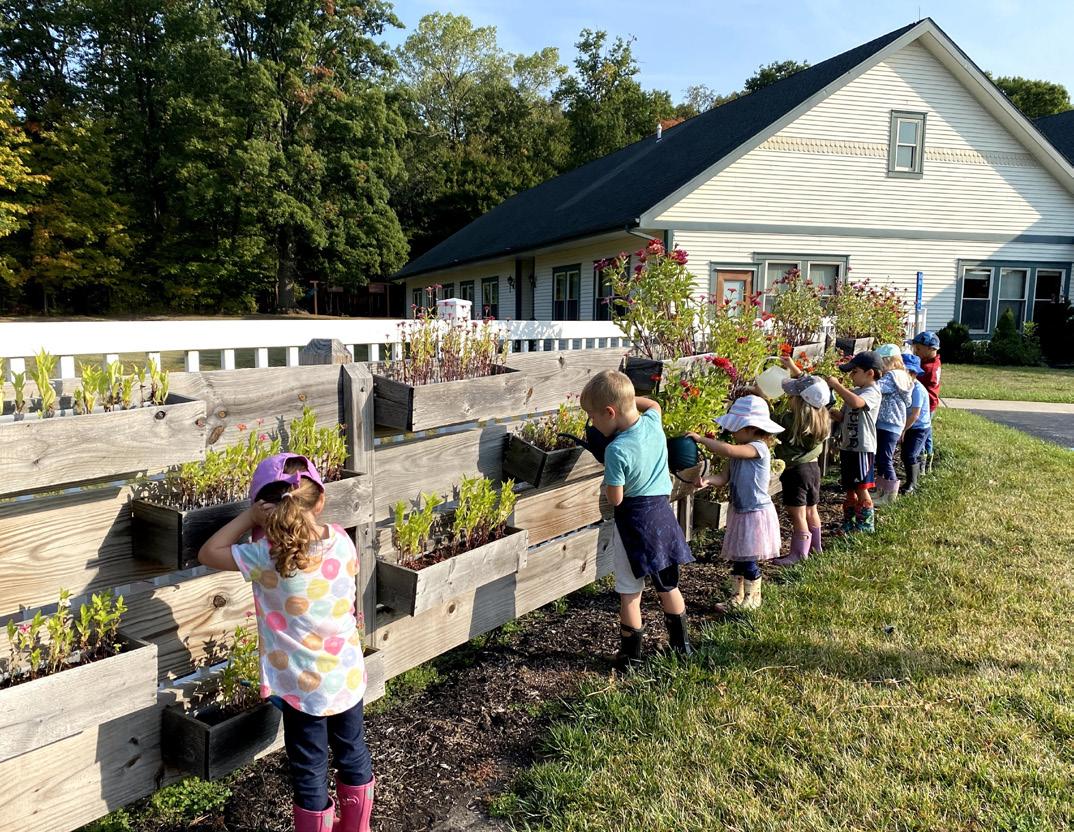


What are the skills necessary for Oak Farm graduates to be successful? Our Portrait of a Graduate enables Oak Farm students and faculty to focus beyond the school environment and defines skills that students will need to be successful in a rapidly changing, increasingly diverse, and interconnected world. Teachers and students reflect on the following characteristics:
• Life Long Learner—I like to learn, I want to learn, and I never want to stop. Do I exhibit curiosity, critical thinking skills, problem solving, and am I intrinsically motivated?
• Leadership—I have the ability to lead. Am I self-motivated and self-disciplined? Am I a peacemaker and compassionate?
• Citizenship—I care about my community and the world. Am I a community servant, a world changer, and optimistic?
• Emotionally Literate—I am comfortable in my own skin. Am I self-confident? Do I have self-understanding, self-respect, and am I aware of my self-development?
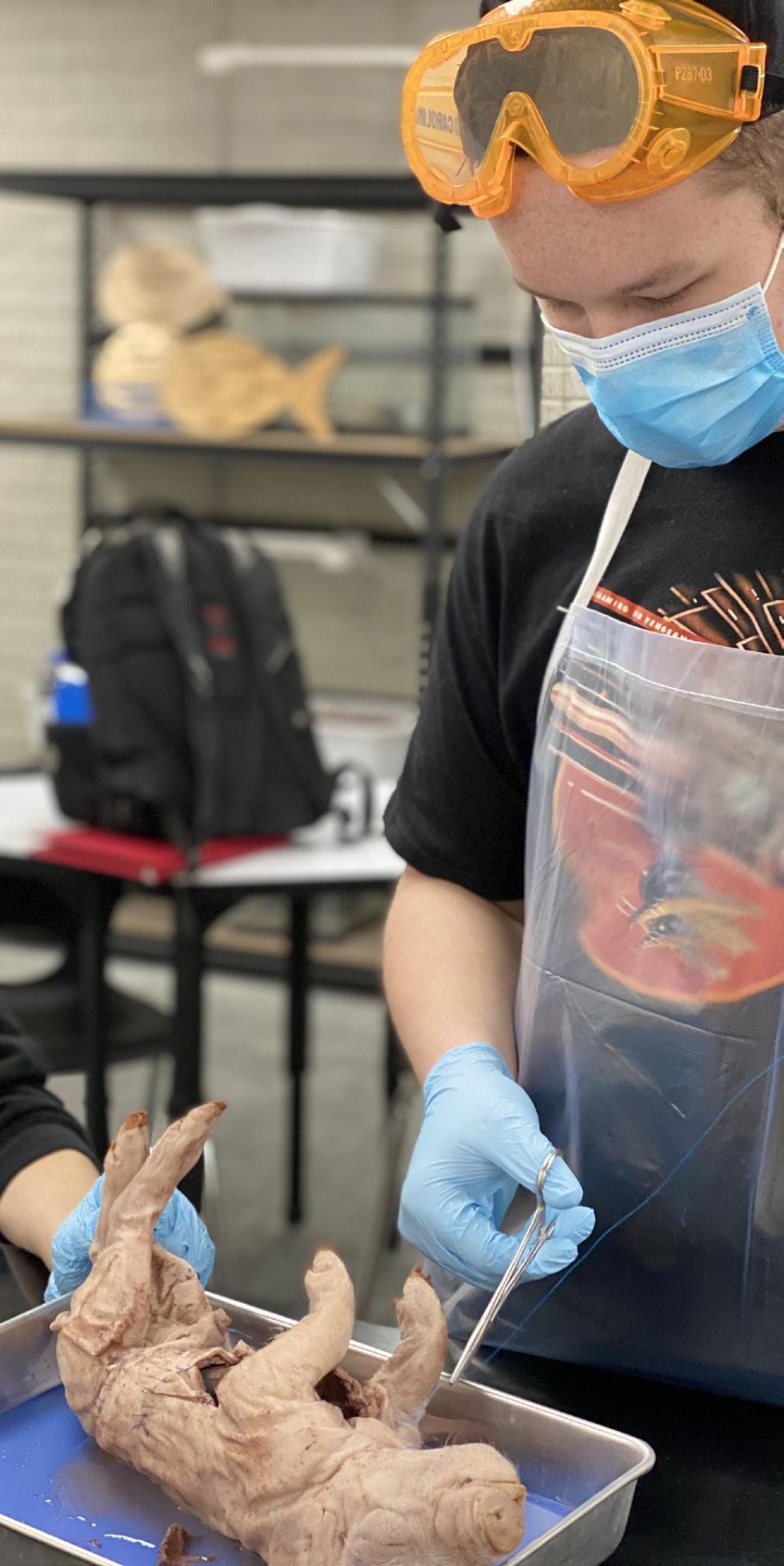
• Engaged and curious
• Critical thinker
• Problem-solver
Global Citizen
• Civic-minded (knowledge and awareness of the impact of one’s actions on society)
• Social activist (knowledge, awareness, and beneficial action on behalf of the world and its people)
• Optimistic
“Oak Farm impacted my love of learning by showing me the excitement and engagement that accompanies real, genuine learning. Here I became intrinsically motivated. I wanted to learn because I was interested versus learning the material just for the next test.”
Megan Green, Class of 2012Leadership
• Self-motivated
• Self-disciplined
• Compassionate
• Empathetic
• Collaborative Emotionally Literate
• Self-confident
• Self-understanding
• Self-respect
• Always striving for self-development
• Optimistic and joyful
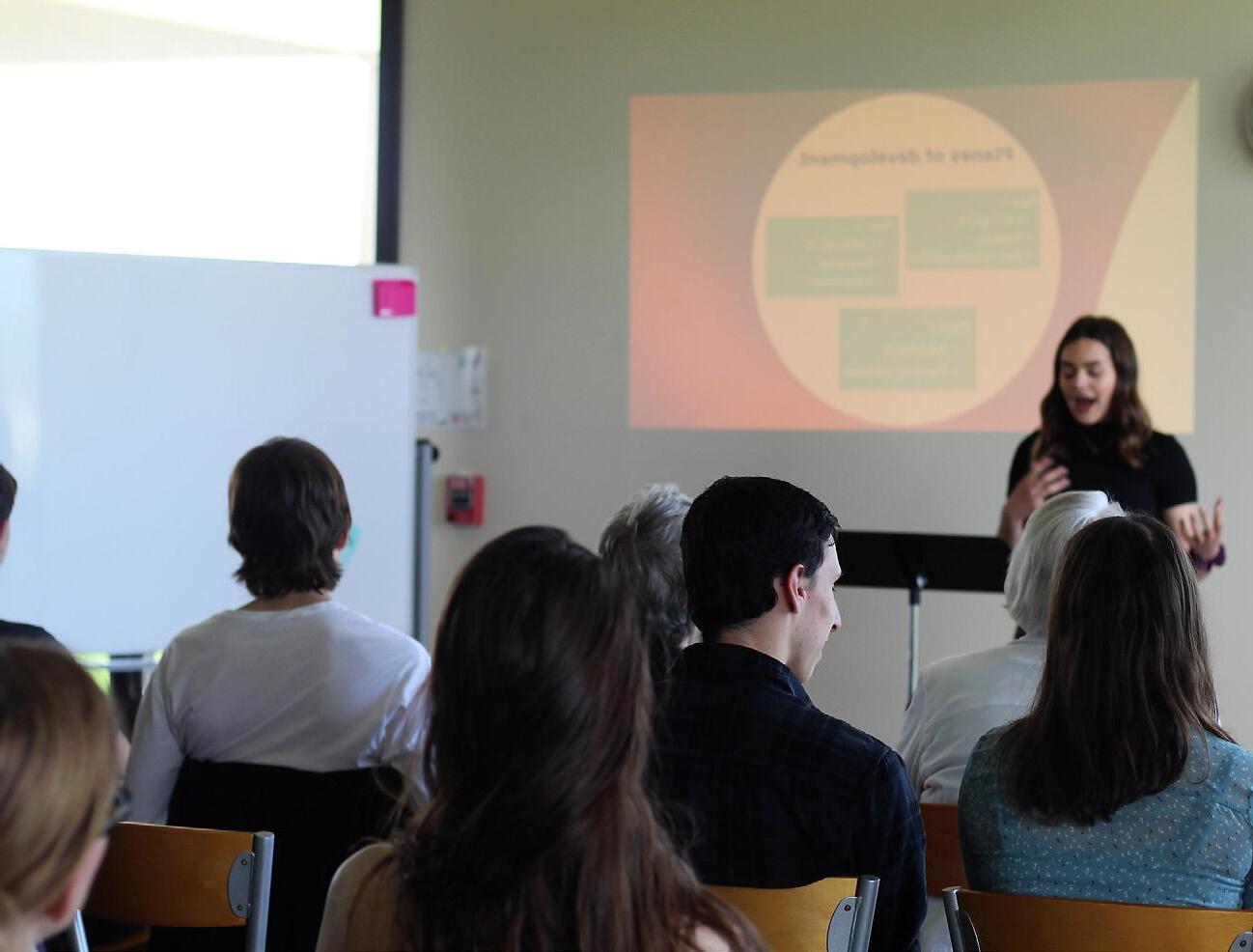
Leadership
“The leadership, problem solving, and speaking skills that I learned from Oak Farm earned me an invitation to join the National Honor Society. I excelled in project based learning, leading my peers in group work. I attribute this to the challenging academic experiences I had at Oak Farm from reading to math.”
Reid Burton, Class of 2013“At Oak Farm we were able to explore and research what we were interested in. Research is a huge part of the curriculum and I was empowered to learn and present to others about what I found interesting, from Ancient China to current events.”
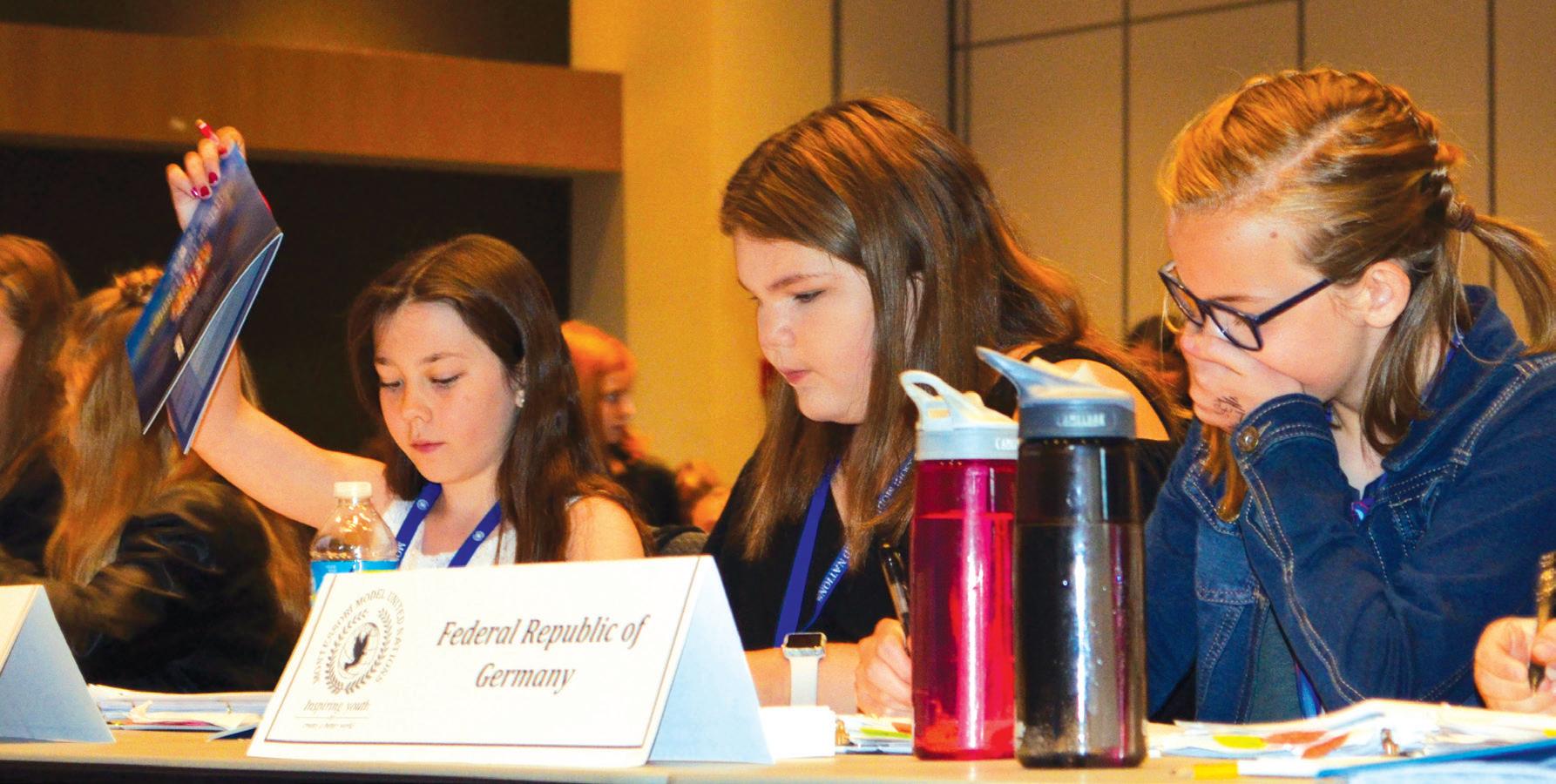

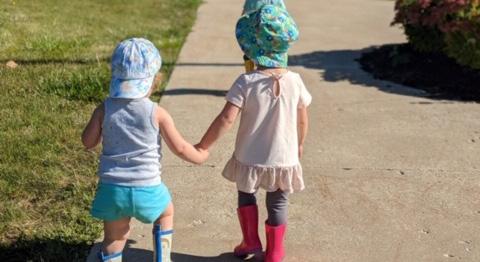
“The Erdkinder program was my biggest influence at Oak Farm. It taught me a lot about life and being a person. Although classes taught me many things, the life lessons learned working with the farm animals gave me hands-on-experience and 'real world' skills ranging from problem solving, perseverance, integrity, self confidence, and respect.”
WormanJust as the classrooms of Oak Farm invoke peace, collaboration and acceptance, so too does the larger body comprised of parents, families and staff who interact within the Community Life of Oak Farm.
Friend building opportunities are offered on campus including: Fall Festival, Grandparent’s Day, Holiday Sing-a-long and Earth Fest. These student driven events highlight the importance of interaction; both between students and parents alike. Off campus parent gatherings, Oak Farm Connects events and our annual Gala provide adults the opportunity to share connections that build broader relationships.
Students have the opportunity to be part of after school extracurricular programs taught by staff and community members. During the summer months, our campus is filled with campers exploring the woods and the natural beauty of our grounds.
Our Oak Farm community depends on the time, talent and treasures of all. Hundreds of hours each year are offered to help care for our campus, tend
to the animals, support the staff and share unique learning opportunities with the children.
Our school is supported financially through the generous contributions of faculty, parents, grandparents and members of our larger community. Each year there are various opportunities to support the school financially.
The founding principle at Oak Farm for giving has always been, “It is not what you give, but that you give.”

